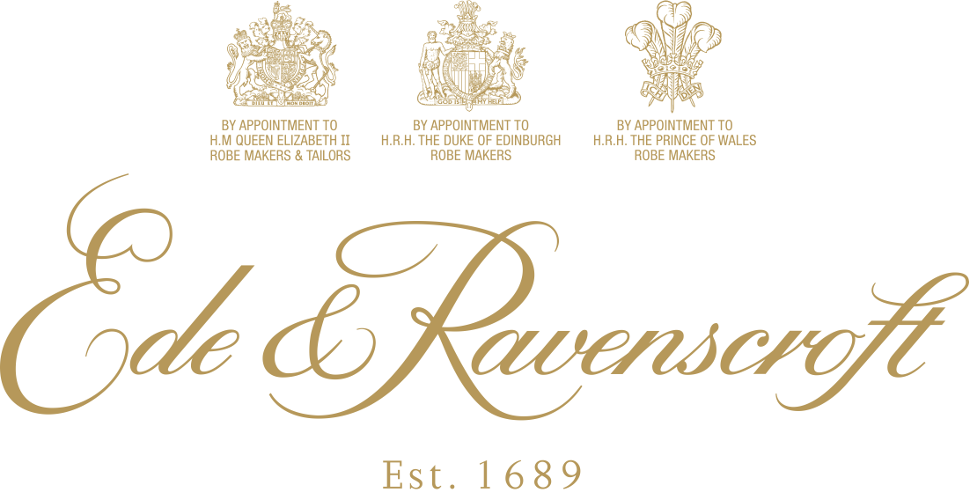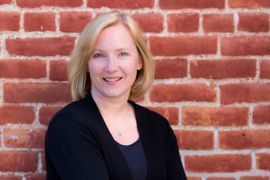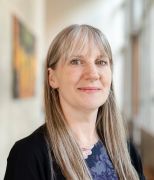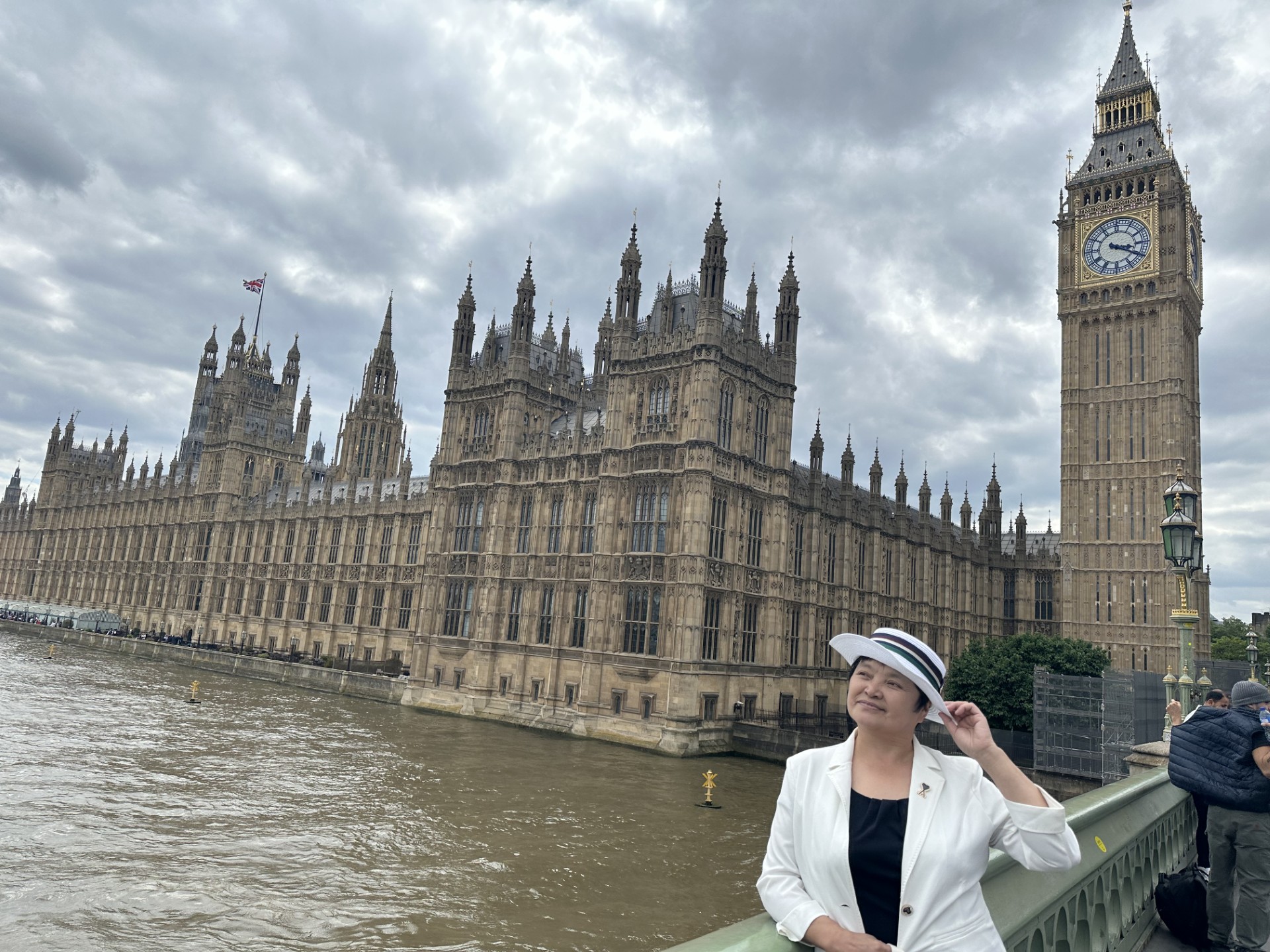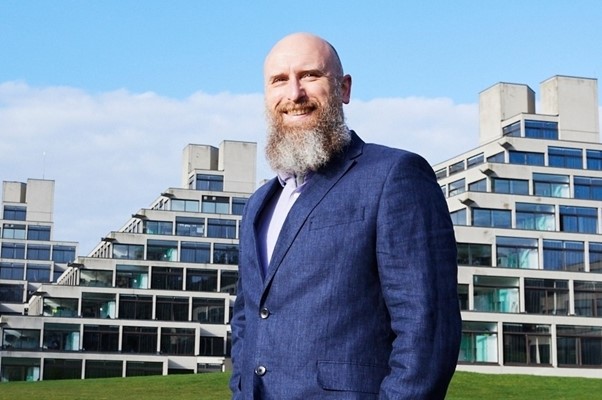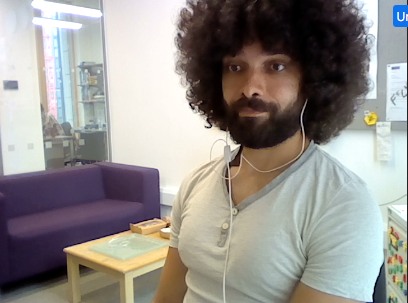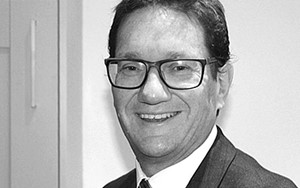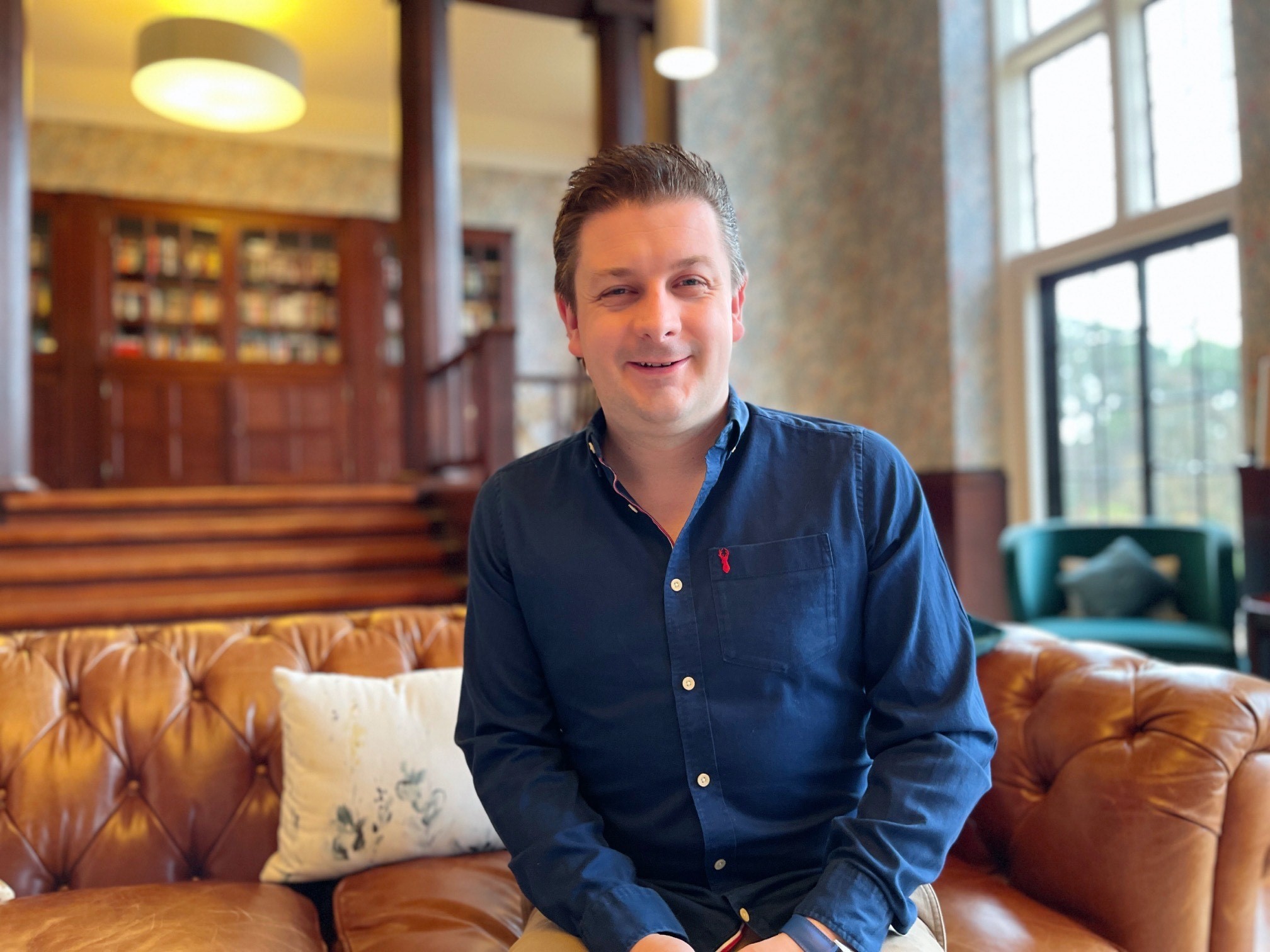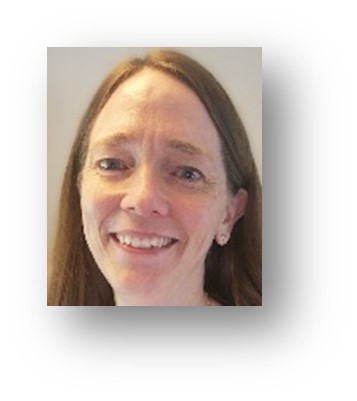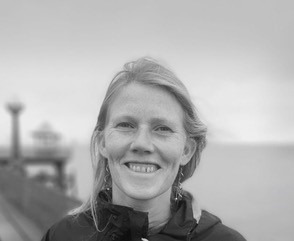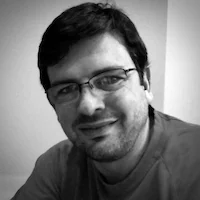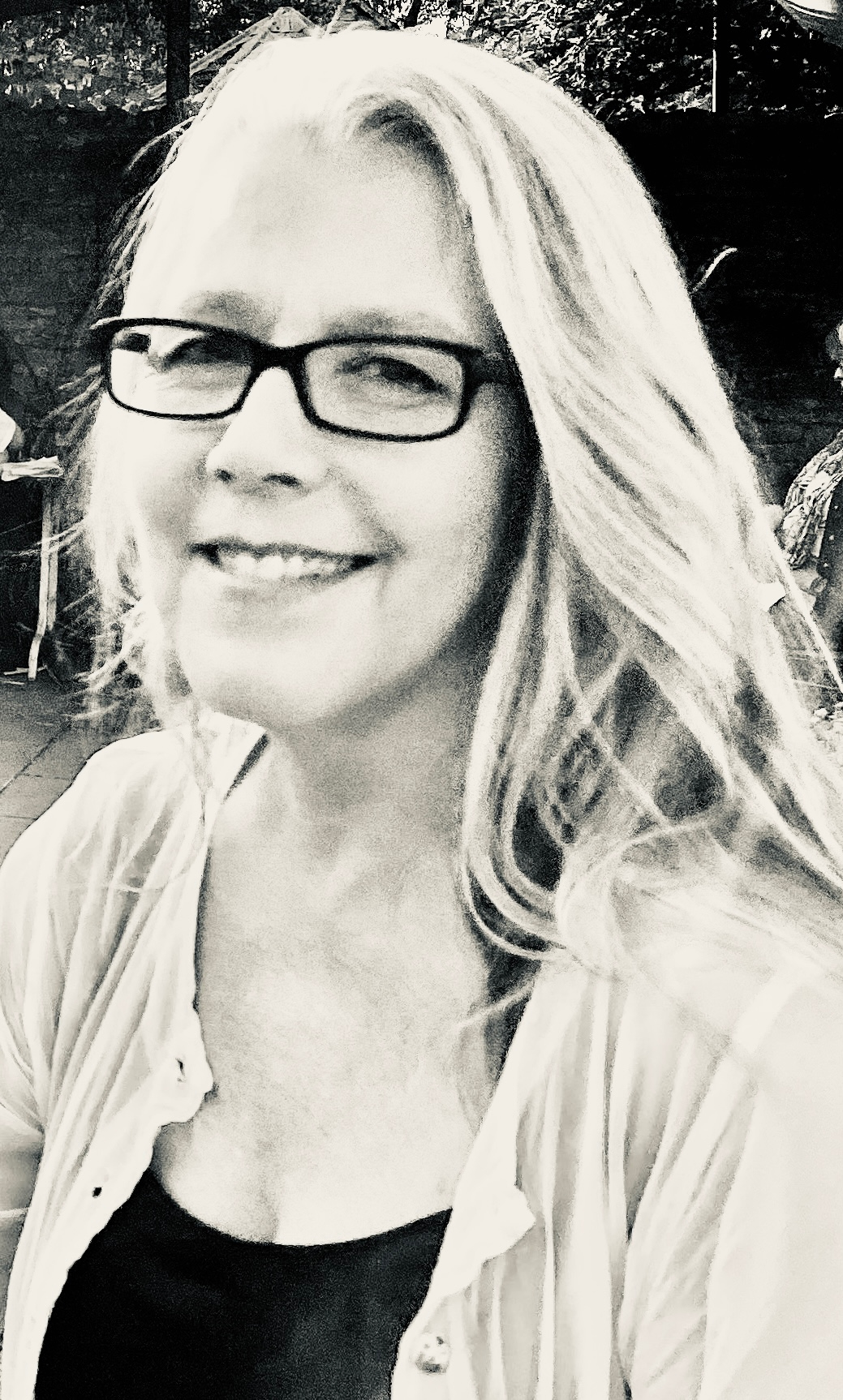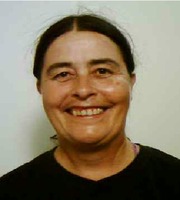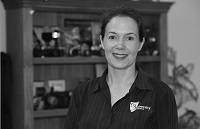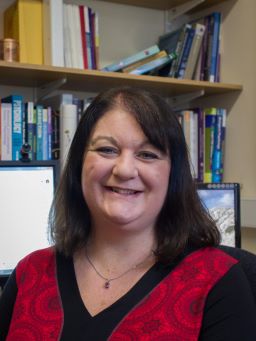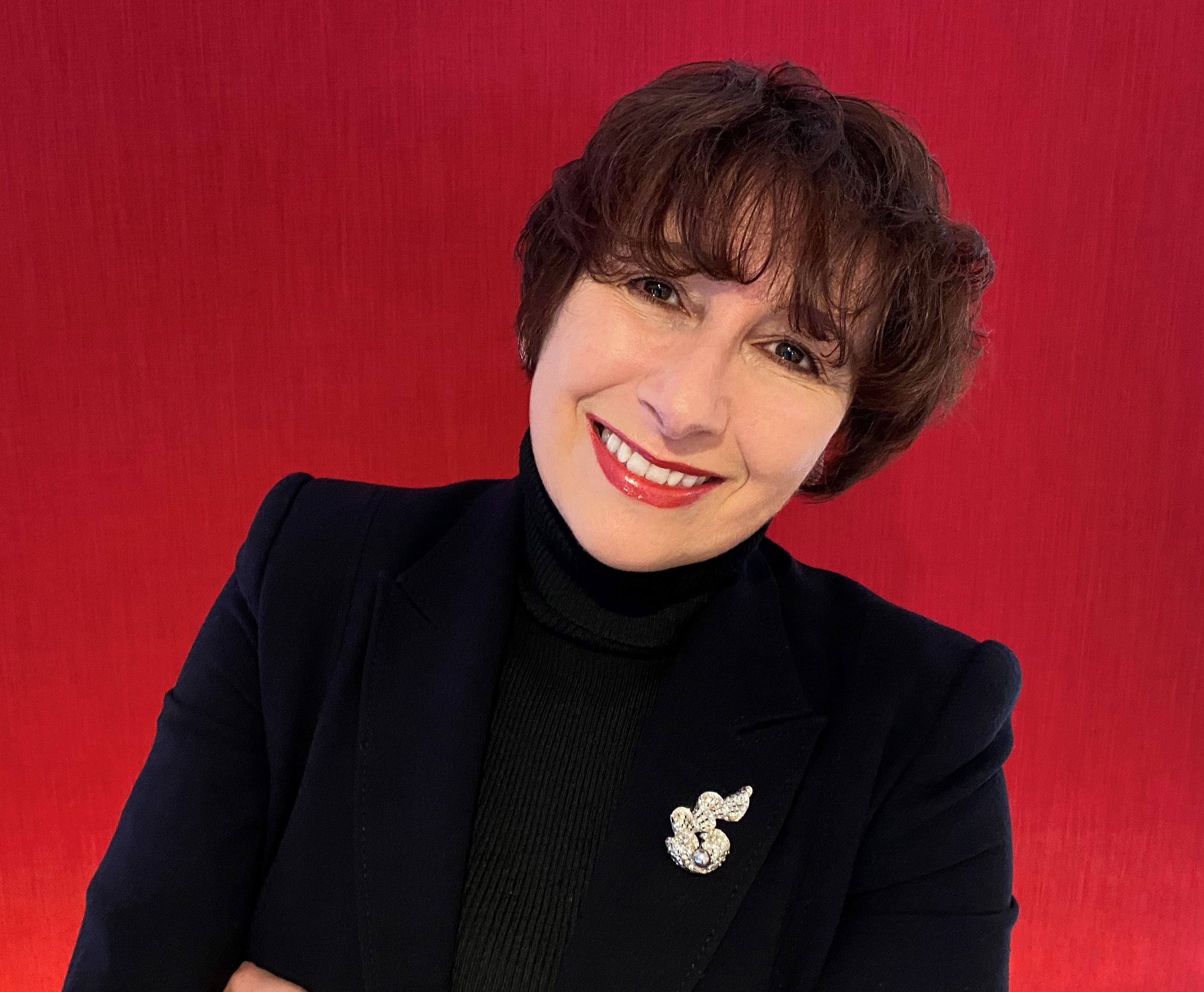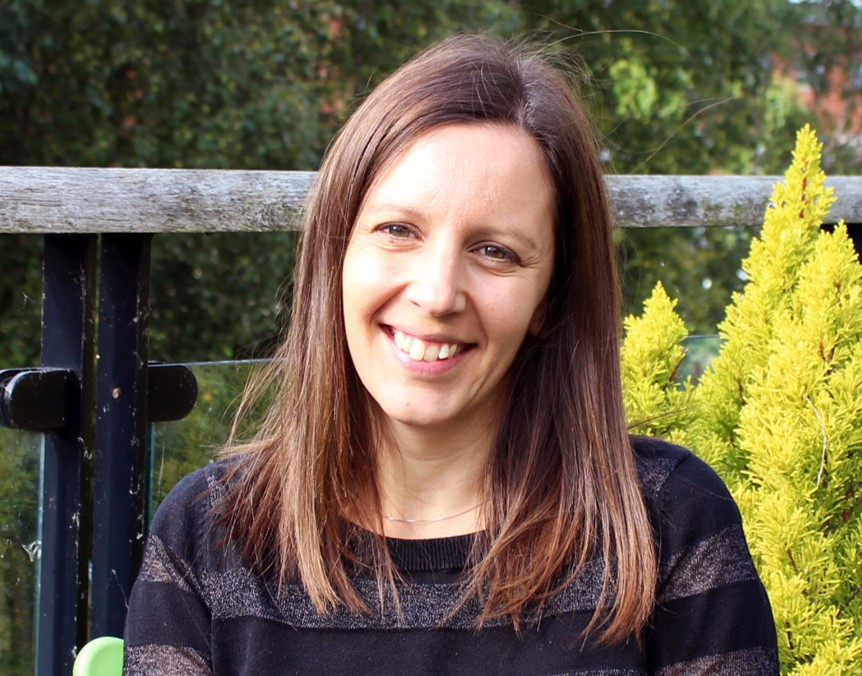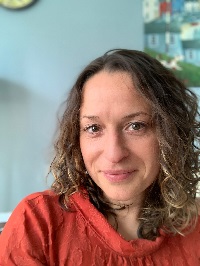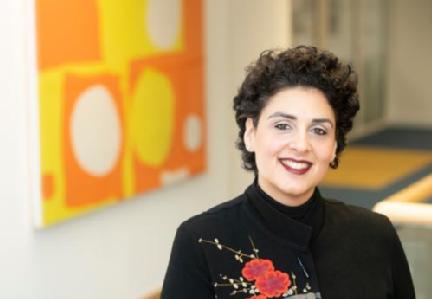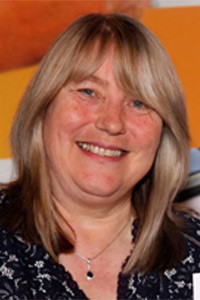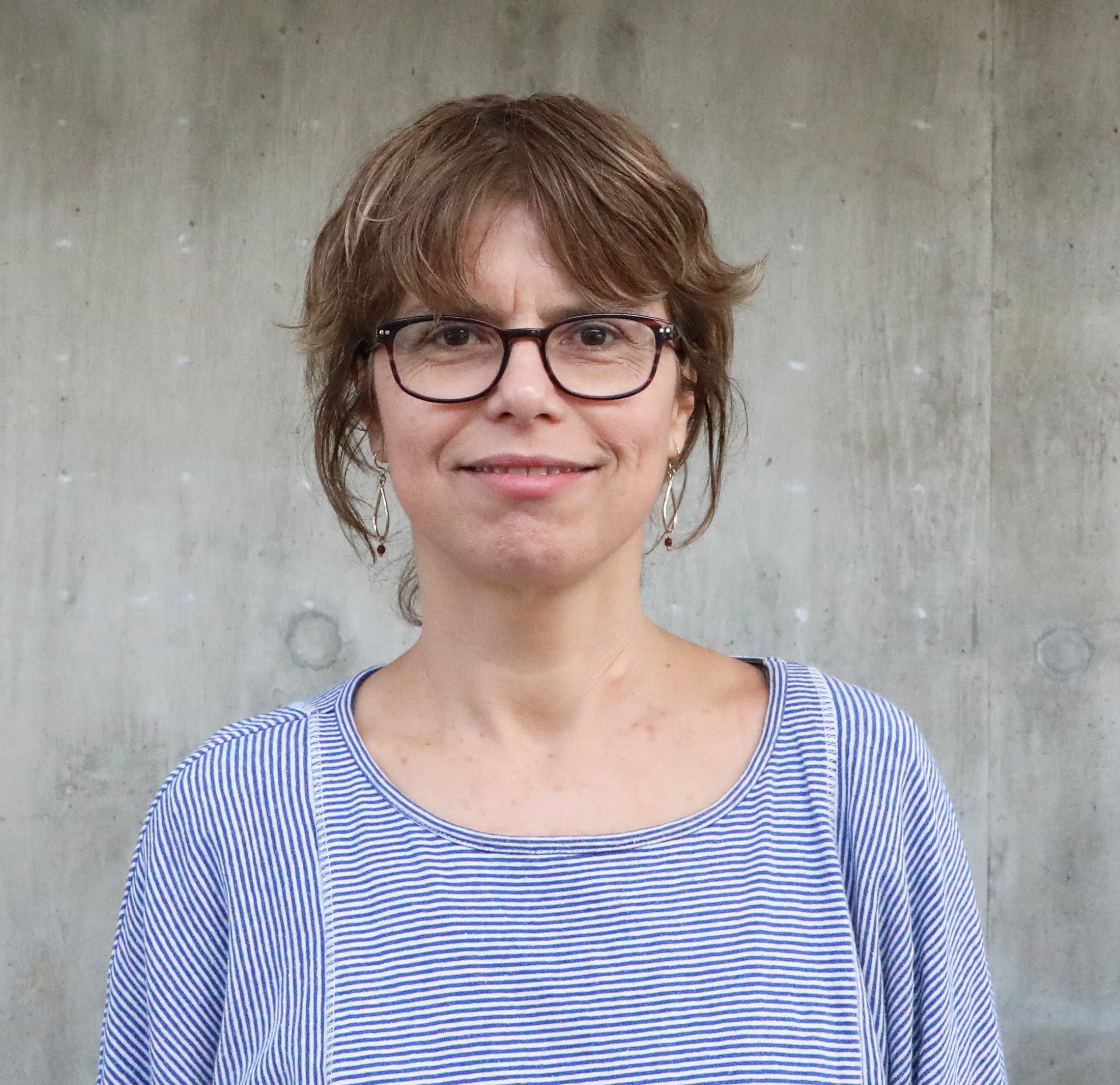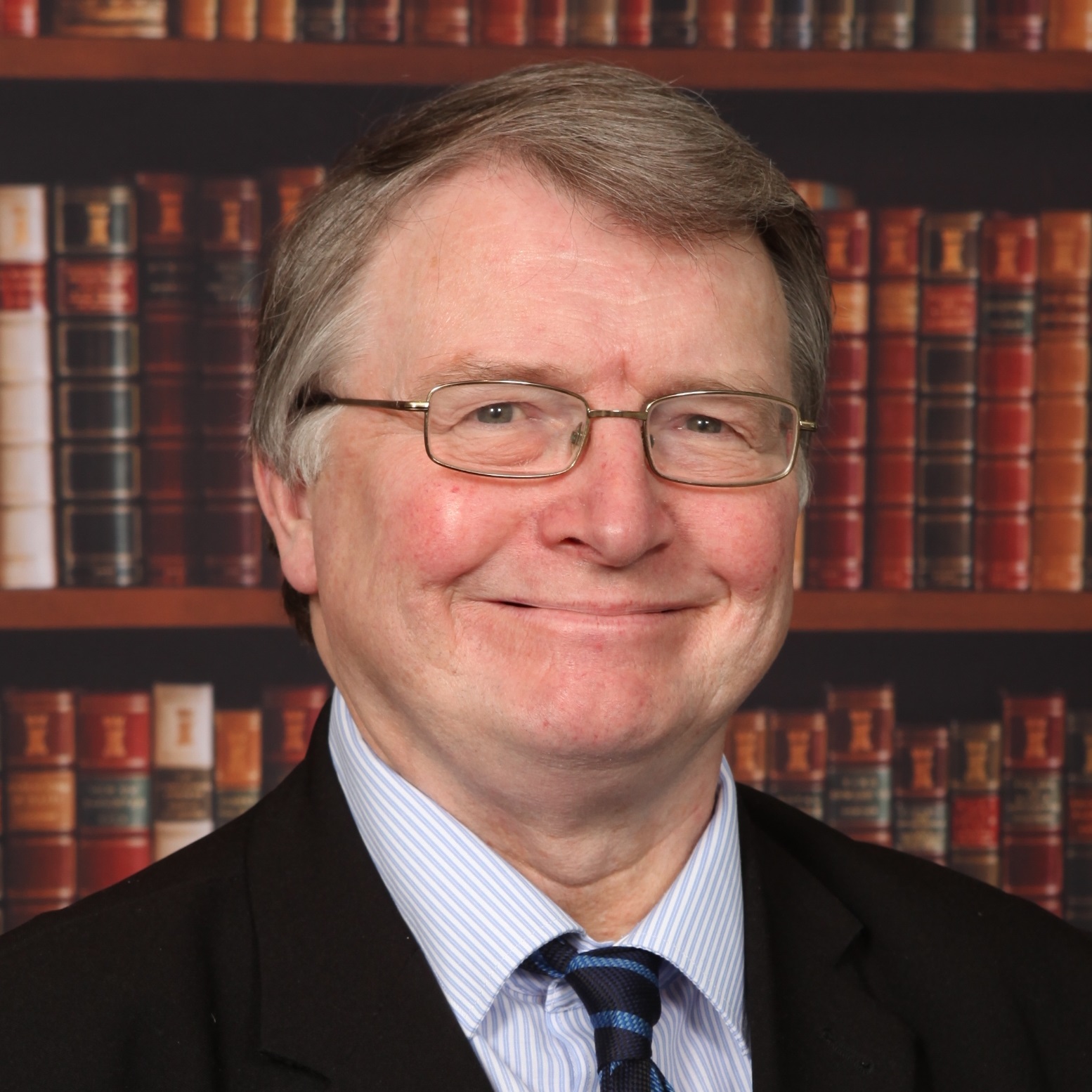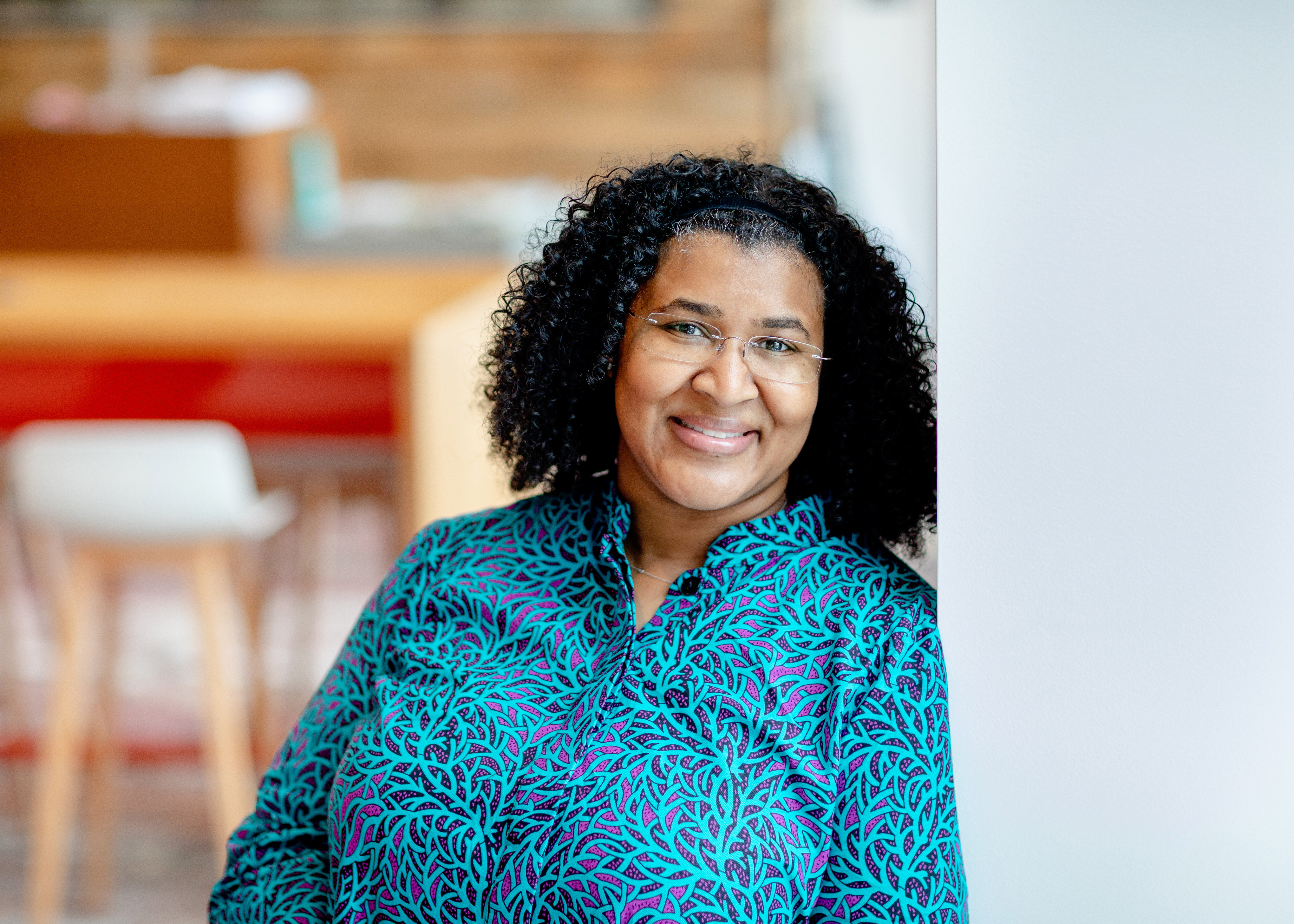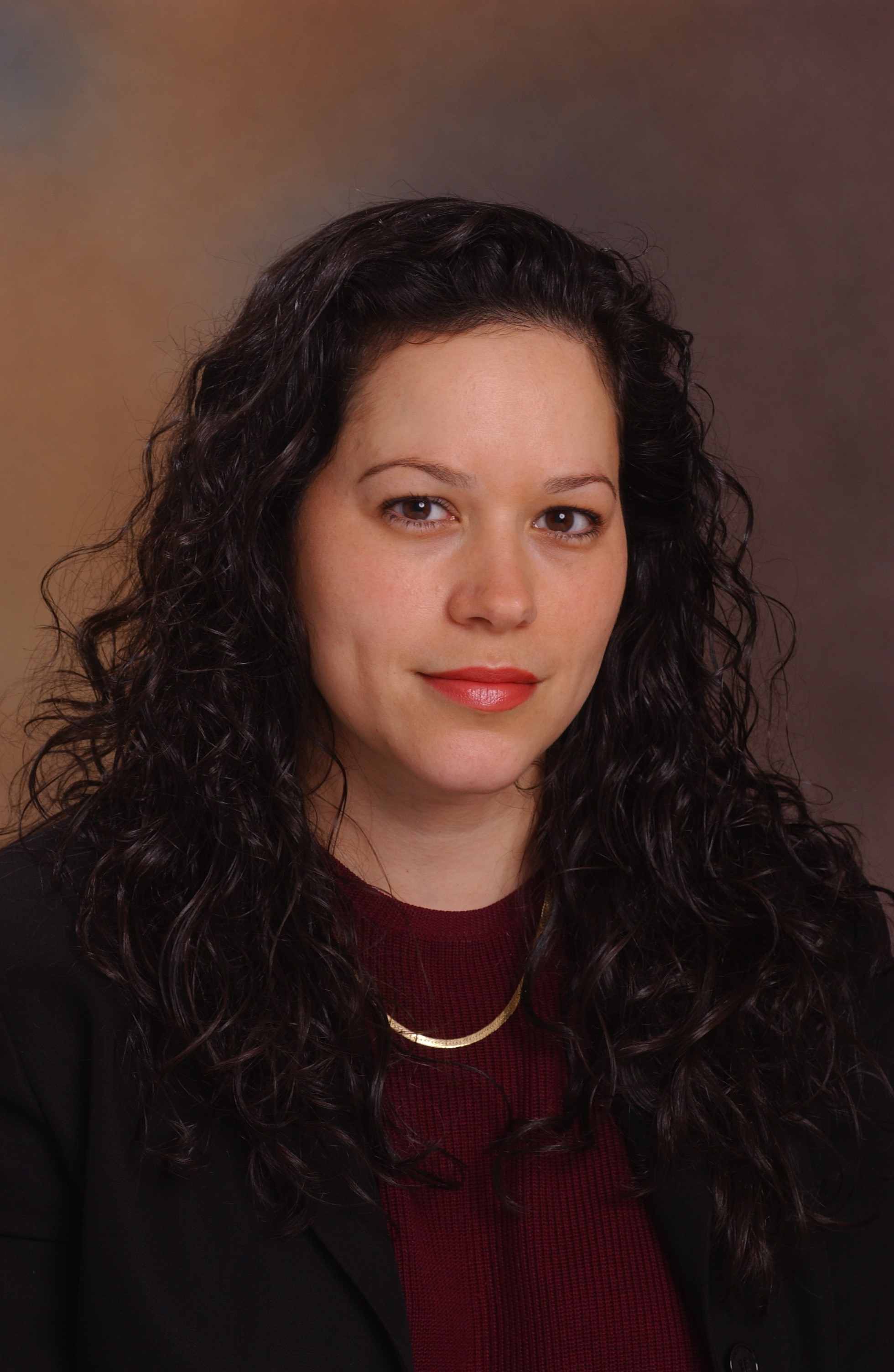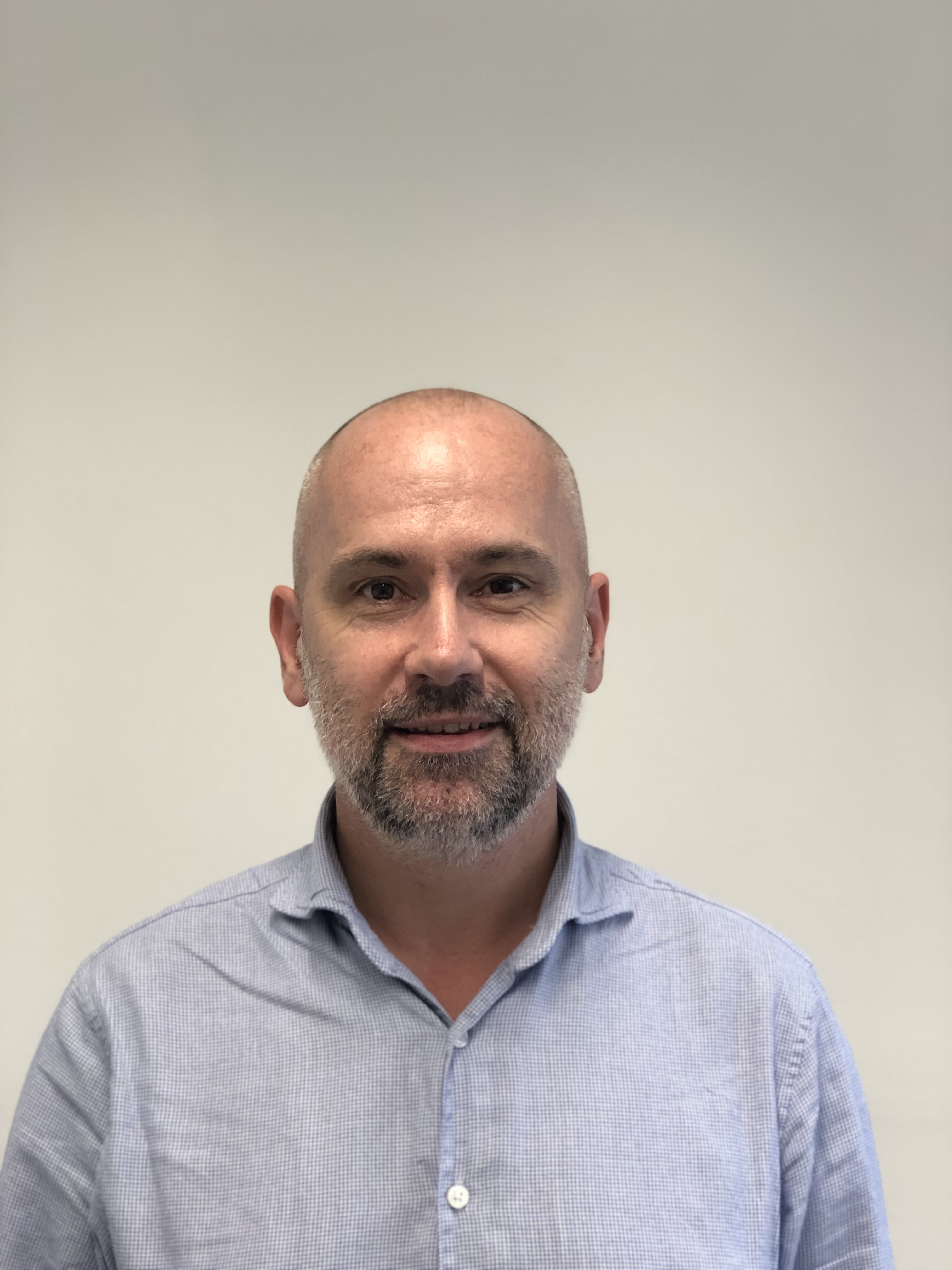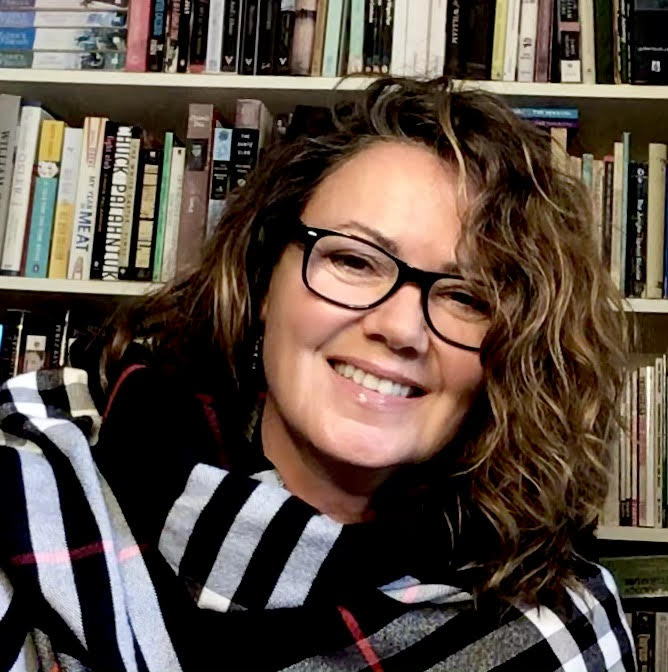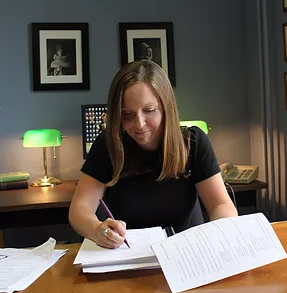IFNTF Global Seminar Series
The IFNTF Executive is delighted to announce the IFNTF Global Seminar Series providing an opportunity to; hear from the world’s award winning higher education teachers, to share pedagogy and research and join a global community of scholars.
6th Global Seminar Series 2024-25
5th Global Seminar Series 2023-24
4th Global Seminar Series 2022-23
3rd Global Seminar Series 2022
2nd Global Seminar Series 2021
1st Global Seminar Series 2021
IFNTF 6th Seminar (Monday 23rd June 2025)
The IFNTF are delighted to announce the sixth talk in our 6th Global Seminar Series entitled:
“Academic Impostor Syndrome in students and academic staff: Navigating the pathway to confidence and control”.".
The seminar will be delivered by:
Dr Jennifer Coleman (Western New Mexico University)
Dr Valerie Todd (Aberystwyth University in Wales)
Dr Sara Kien (Northern Arizona University)
Ivette Merced (University of Arizona)
Dr David Mcilroy (Liverpool John Moores University)
When: Monday 23rd June 2025 8pm UK BST
We have tried to identify a time for the seminar that is accessible to all our members around the globe as follows:
Time: Time: 1 hour @ 8 pm on Monday 23rd June 2025 UK BST |
Register:
You can register to attend what is sure to be a fascinating 1 hour talk at this link:
here
Abstract:
Impostor Syndrome has received growing attention in recent years because of its universality and maladaptive association with wellbeing and performance outcomes, recognised in professional and academic settings.
Researchers have grappled with measurement issues in the quest for a gold standard. Our initial pursuit was to develop a measure that would capture students’ approaches to their studies in the context of
impostor perceptions. Issues emerging from our literature review covered fear of evaluation, fear of being discovered, impression management, feelings of not belonging and unfavourable comparisons with others.
We confirmed that these were commonly reported in students from 2 UK universities (N = 332), and in presenting our findings to international audiences, academic colleagues also reported impostor intrusions that
impaired their wellbeing and debilitated their confidence. We therefore worked on strategies to counter each of the 10 domains and empower students and academics to navigate their way to confident control.
Biographies:
Jennifer Coleman, Ph.D., is professor of psychology at Western New Mexico University. She is a representative for the Council of Undergraduate Research, is on the editorial board of Scholarship and Practice of
Undergraduate Research, and co-edited Undergraduate Research in Online, Virtual, and Hybrid Courses: Proactive Practices for Distant Students (2022).
Dr Valerie Todd is the Director of Learning and Teaching within the Psychology Department at Aberystwyth University in Wales. She has extensive experience of teaching Psychology, and her research interests include
factors that influence student progression and attainment in Higher Education.
Sara Kien, Associate Teaching Professor at Northern Arizona University, holds a Ph.D. in Cognitive Psychology (Northwestern) and a Masters in Data Science (UC Berkeley). An award-winning educator with 20+ years of experience,
she uses neural networks to study social media discourse and investigates best teaching practices through SoTL research.
Dr David Mcilroy is a Reader and Principal Lecturer in the School of Psychology at Liverpool John Moores University. He has been an IFNTF member since its inception and an
NTF since 2010, and his research focuses on the applications of psychology to pedagogy in Secondary and Higher Education.
Ivette Merced is a school psychologist (NCSP), a Ph.D. Candidate and graduate student fellow at the University of Arizona. For the last five years she has worked as a psychology professor at Irvine Valley College.
She currently serves as a member of the American Psychological Association Division 16 Ethics Committee.
IFNTF 5th Seminar (Monday 14th April 2025)
The IFNTF are delighted to announce the fifth talk in our 6th Global Seminar Series entitled:
“Investigating the keys to teaching excellence".
The seminar will be delivered by: Claire Goode (Principal Lecturer in Otago Polytechnic’s)
When: Monday 14th April 2025 8pm UK BST
We have tried to identify a time for the seminar that is accessible to all our members around the globe as follows:
Time: Time: 1 hour @ 8 pm on Monday 14th April 2025 UK BST |
Register:
You can register to attend what is sure to be a fascinating 1 hour talk at this link:
here
Abstract:
What does it mean to be an ‘excellent’ teacher? What is best practice in tertiary teaching? What is it that makes a genuine difference for learners? To better understand the complex and multi-faceted notion
of ‘teaching excellence’, this research used narrative inquiry to investigate the stories of 12 national Tertiary Teaching Excellence awardees in New Zealand, exploring their trajectories and practice,
including views on their identity and on excellence in tertiary teaching.
This presentation focuses on selected findings resulting from almost 14 hours of discussion, highlighting themes occurring across the set of stories. In this seminar, I will discuss the model − ‘The Keys to
Teaching Excellence’ – which captures the principal elements of excellence in practice. Five over-arching keys are each made up of characteristics inherent in a teacher’s personality, and skills which can be
developed through practice and reflection. Findings highlight awardees’ views on their identity and practice, including a genuine love of learning, a willingness to recognise there is always more to learn,
and the importance of reflecting on practice.
Educators, mentors, and teacher developers can gain a deeper understanding of teaching excellence, which may enable different interventions to develop excellent practice from staff,
raise standards, and encourage teachers to embrace personal development and lifelong learning. I hope, too, that educators will recognise elements of themselves and their practice,
and will feel (re-) motivated, (re-)energised, and inspired to share these with their peers.
Biography:
Claire Goode is a Principal Lecturer in Otago Polytechnic’s Learning and Teaching Development team, and works alongside academic staff to build their capabilities in multiple aspects of pedagogical practice.
This role brings together skills, knowledge, and practice acquired throughout more than 27 years in a variety of education contexts in New Zealand,
France, and the UK. Claire is particularly interested in teacher development and the scholarship of teaching and learning. She is a 2024 recipient of a national Te Whatu Kairangi Aotearoa Tertiary Educator Award.
Links:
LinkedIn
Research Gate
View Recording |
The IFNTF are delighted to announce the first talk in our 6th Global Seminar Series entitled: “The Power of Together: Building a Unified SoTL Landscape".
The seminar will be delivered by Professor Earle Abrahamson (University of Hertfordshire UK).
When: Monday 25th November 2024 10am UK Time
We have tried to identify a time for the seminar that is accessible to all our members around the globe as follows:
Time: Time: 1 hour @ Monday 25th November 2024 UK | Monday 25th November 2024 North America Eastern | Monday 25th November 2024 New Zealand | Monday 25th November 2024 Australian Eastern Daylight Time (note: please check the time zone for your location)
Register:
You can register to attend what is sure to be a fascinating 1 hour talk at this link:
https://forms.gle/um8wBBuiRwfBxHzU6
Abstract:
The Power of Together: Building a Unified SoTL Landscape
This presentation, explores the transformative potential of collaborative approaches in the Scholarship of Teaching and Learning (SoTL). Addressing the SoTL Grand Challenges of identity and the complexities of learning together, the talk highlights how moving beyond isolated, discipline-specific “silos” fosters a more synchronised, interconnected approach to SoTL. By integrating international perspectives and diverse working methods, this session demonstrates how interdisciplinary, cross-cultural collaborations can enhance SoTL practice and research, pushing the boundaries of traditional pedagogy and promoting a more inclusive academic community. Participants will engage with strategies for embedding multi-lens perspectives into teaching practices and see how international collaboration can address identity, inclusion, and the shared complexities in learning. This presentation invites educators, researchers, and leaders to imagine a SoTL landscape rooted in synchronicity—where collaborative frameworks are not only possible but essential for advancing the reach and relevance of SoTL globally.
Biography:
Earle Abrahamson is a professor at the University of Hertfordshire, UK with a deep commitment to advancing SoTL.
As a Principal Fellow and National Teaching Fellow of Advanced HE, he brings a wealth of experience in championing
cross-disciplinary SoTL initiatives. Professor Abrahamson serves as co-editor of Teaching & Learning Inquiry
(TLI), the ISSOTL journal, and co-leads the ISSOTL Advocacy Committee, where he actively promotes SoTL scholarship worldwide.
His work is characterized by a focus on collaborative, globally aware pedagogies that address SoTL’s grand challenges around identity,
learning complexities, and the integration of diverse perspectives. Professor Abrahamson’s research and leadership inspire a shift from
isolated SoTL practices toward a model of synchronized,
community-driven scholarship, reinforcing the value of shared inquiry and advancing a SoTL vision that
resonates across disciplines and geographies.
The IFNTF are delighted to announce the talk in our fifth Global Seminar Series entitled:
“National Teaching Fellowships - tokenism or the genuine article?".
The seminar will be delivered by: Dr James Derounian
When: Monday 8th July 2024 10am UK BST
We have tried to identify a time for the seminar that is accessible to all our members around the globe as follows:
Time: Time: 1 hour @ Monday 8th July 2024 UK BST | Monday 8th July 2024 North America Eastern | Monday 8th July 2024 New Zealand | Monday 8th July 2024 Australian Eastern Daylight Time (note: please check the time zone for your location)
Register:
You can register to attend what is sure to be a fascinating 1 hour talk at this link:
https://forms.gle/um8wBBuiRwfBxHzU6
Abstract:
Following on from my 2024 IFNTF paper “Augmenting Teaching Excellence: Investment, not a pat on the head, is the way forward”.
I report on early findings from a survey of UK National Teaching Fellows, conducted in the spring of 2024. The survey, which elicited a response from 114 NTFs of 660 total (17%).
The 10-question online, anonymous survey, interrogated how and whether UK National Teaching Fellowships are a genuine reward.
And you'll have to attend to hear the early findings!
Biography:
Dr James Derounian, National Teaching Fellow, Visiting Professor, is 66 years young, and has taught - predominantly distance learning, mature,
students for over 30 years. James continues to teach, research, undertake consultancy and act as an external examiner. His interests include rural community development,
rural social issues, community engagement; active and blended learning; fun and enjoyment within learning.
James is married with two grown-up children, both of whom undertake academic work. He is cat-mad - Otto, ginger, rescue male is our current slightly warped resident! James enjoys cycling,
Iyengar yoga, Tai Chi, badminton, reading modern novels and....grandparenting!
IFNTF 9th Seminar (25 October 2023)
The IFNTF are delighted to announce the eighth talk in our fourth Global Seminar Series entitled:
“Improving inclusion and representation within the curriculum - where to start?".
The seminar will be delivered by: Professor Allán Laville (University of Reading, UK)
When: Wednesday 25th October 2023 8pm UK BST
We have tried to identify a time for the seminar that is accessible to all our members around the globe as follows:
Time: Time: 1 hour @ Wednesday 25th October 2023 8pm UK BST | Wednesday 25th October 2023 North America Eastern | 26th October 2023 New Zealand | 26th October Australian Eastern Daylight Time (note: please check the time zone for your location)
Register:
You can register to attend what is sure to be a fascinating 1 hour talk at this link:
https://forms.gle/um8wBBuiRwfBxHzU6
Abstract:
Knowing where to start in developing a diverse and inclusive curricula is often an initial barrier for many colleagues teaching in Higher Education. Professor Laville's approach was to engage in active listening exercises with students, colleagues, and Student Union representatives to create institutional-level vision statements for decolonising the curriculum and inclusive Teaching and Learning environments. In this seminar, we explore how these vision statements at the University of Reading have led to sector-leading resources on:
• Decolonising teaching content
• Decolonising teaching methods
• Decolonising assessment methods
• Creating inclusive Teaching and Learning environments
• Student-Staff partnership approach to decolonising the curriculum
• Decolonising research to inform decolonising teaching content
The resources are open access and include:
• Student and staff vision statements
• Student-led FAQs and examples of best practice
• Reflective question-led approach to decolonising practice and creating inclusive Teaching and Learning environments
• Case studies on decolonising practice and creating inclusive Teaching and Learning environments across disciplines
• Annotated reading/watching/podcast list recommending resources to develop understanding of decolonisation and anti-racist practice
Professor Laville's approach has been recognised by Advance HE (Laville, 2022a), Oxford University Press (Laville, 2022b), and Times Higher Education (Laville, Kilmister, Majid, and Nair, 2022).
By the end of the seminar, colleagues should have a clear view of actions that they can take to engage in future inclusive practices.
Biography:
Professor Allán Laville is Dean for Diversity and Inclusion and Professor of Equity in Psychology at the University of Reading. Allán is a National Teaching Fellow (2023), Senior Fellow of the Higher Education Academy and an Associate Fellow of the British Psychological Society (BPS). He is Co-Chair of the Equity, Equality, Diversity and Inclusion Committee and member of the Scientific Programme Advisory Group for the British Association for Behavioural and Cognitive Psychotherapies. He is also a member of the BPS Equality, Diversity and Inclusion Strategic Board. In 2019, Allán won the Reading Students' Union Award for Diverse and Inclusive Teaching Excellence and in 2020, he was awarded a University Teaching Fellowship. Allán was a finalist in the BPS and Oxford University Press Higher Education Psychology Teacher of the Year 2020 and 2022 competitions.
IFNTF 8th Seminar (28 June 2023)
The IFNTF are delighted to announce the eighth talk in our fourth Global Seminar Series entitled:
“The pedagogical potential of work-based learning placements – a “missing” link between theory and practice for employability within higher education.".
The seminar will be delivered by: Professor Lisa Taylor (University of East Anglia, UK)
When: Wednesday 28th June 2023 10am UK BST
We have tried to identify a time for the seminar that is accessible to all our members around the globe as follows:
Time: Time: 1 hour @ Wednesday 28th June 2023 9pm UK BST | Wednesday 28th June 2023 North America Eastern | Wednesday 28th June 2023 New Zealand | Friday Wednesday 28th June Australian Eastern Daylight Time (note: please check the time zone for your location)
Abstract:
Employability has become one of the critical priorities within the higher education landscape across the world (Abelha et al., 2020) with work-based learning (WBL) placements being one of the most common activities to support employability (The Association of Graduate Careers Advisory Services, Shortlist Me, 2022). However, WBL can be seen as an inferior “add on” to the academic curriculum due to the perceived lack of pedagogical design and delivery that is an expected part of the academic curriculum provision within higher education. This seminar presents the link between theory and practice for employability, through a case exemplar WBL placement model. The award-winning Peer Enhanced e-Placement (PEEP) model is a WBL opportunity that is delivered entirely online – designed and delivered with robust evidence-based pedagogical underpinnings. The pedagogical principles of the PEEP will be explored during this seminar to reinforce the valuable contribution that WBL placements can make to the academic provision within higher education, to maximise the employability learning gains and provide the “missing” link between theory and practice for employability.
Biography:
Lisa is passionate about employability and learning innovations, has written three books, and publishes and presents widely. Lisa was awarded an Advance HE National Teaching Fellowship for her sustained and impactful work within employability in 2021. Lisa created the multi award-winning Peer Enhanced e-Placement (PEEP) – a work-based learning placement model delivered entirely online which has now been adopted widely across professions within the higher education sector and is used as a case exemplar in the seminar today and in Lisa’s recent book publication https://www.routledge.com/Constructing-Online-Work-Based-Learning-Placements-Approaches-to-Pedagogy/Taylor/p/book/9781032326207
IFNTF 7th Seminar (18 May 2023)
The IFNTF are delighted to announce the seventh talk in our fourth Global Seminar Series entitled:
“Harnessing ChatGPT for Academic Innovation: An Interactive Exploration (“Beyond the Cheating Freak-out”)".
The seminar will be delivered by: Prof James Intriligator (Tufts University (Boston, USA))
When: Thursday 18th May 2023
We have tried to identify a time for the seminar that is accessible to all our members around the globe as follows:
Time: Time: 1 hour @ Thursday 18th May 2023 9pm UK BST | Thursday 18th May April 2023 North America Eastern | Friday 19th May April 2023 New Zealand | Friday 19th May 2023 Australian Eastern Daylight Time (note: please check the time zone for your location)
Abstract:
This interactive (zoom) presentation offers a novel approach to navigating ChatGPT's conceptual spaces, with the aim of fostering academic innovation.
We will discuss the conceptual model and then we will try out this new method by using it! Through guided practice, group activities, and collaborative exercises, participants will gain a
deeper understanding of how to harness the power of ChatGPT for designing courses, developing engaging in-class activities, finding relevant readings and news stories, and creating better assessments.
The presentation will also explore how ChatGPT can be used to promote Diversity, Equity, Inclusion, and Justice (DEIJ), advertise courses to students and industry partners, and navigate other challenges
of an academic's life. Participants are encouraged to create an account on ChatGPT (https://chat.openai.com/) before attending the session, and to bring along any
relevant course/program materials (syllabi, outlines, visions, goals, etc). By the end of the session, participants will have a solid foundation for leveraging ChatGPT to enhance teaching excellence and
various other aspects of their academic lives.
Biography:
James Intriligator is Director of Strategic Innovation in the Department of Mechanical Engineering (School of Engineering) at Tufts University (Boston, USA). He is a Professor of the Practice in Human Factors Engineering. James earned his Ph.D. in cognitive neuroscience at Harvard. James was awarded a UK National Teaching Fellow in 2014. He is the author of over 50 publications in fields as diverse as neuroscience, neurology, consumer psychology, physics, and literary criticism. His latest research is primarily in the domain of developing next-generation human-machine systems.
James Intriligator, PhD, FRSA
Professor of the Practice Dept of Mechanical Engineering
Director, Human Factors Engineering Program
National Teaching Fellow (UK)
Web: https://engineering.tufts.edu/people/faculty/james-intriligator
email: james.intriligator@tufts.edu
P: (617) 627-2071 M/C: (781) 652-1936
IFNTF 6th Seminar (26 April 2023)
The IFNTF are delighted to announce the sixth talk in our fourth Global Seminar Series entitled:
“What does flourishing in the tail end of the pandemic look like?".
The seminar will be delivered by: Dr Louise Younie (Queen Mary University of London, UK)
When: Wednesday 26th April 2023
We have tried to identify a time for the seminar that is accessible to all our members around the globe as follows:
Time: Time: 1 hour @ Wednesday 26th April 2023 8 pm UK BST | Wednesday 26th April 2023 North America Eastern | Wednesday 27th April 2023 New Zealand | Wednesday 27th April 2023 Australian Eastern Daylight Time (note: please check the time zone for your location)
Abstract:
To speak of flourishing helps to move the wellbeing conversation beyond the idea of resilience and toughing it out alone, towards something more interpersonal and ecological, connecting our inner lives with the ebb and flow of loss and renewal, death and growth. Flourishing is about connection with our values, with purpose and meaning (Aristotle’s eudaimonia) and building relationship through engaging compassionately with our own humanity and that of
others. Drawing on creative enquiry innovation in medical education, (the process of exploring lived experience through the arts), we have developed a flourishing model illustrating connection, meaning, purpose and also allowing for ‘keeping it real’ and shadow work.

Parallels have been drawn between flourishing and self-determination theory (i.e. the importance of autonomy, belonging and competence for flourishing). Flourishing also intersects with the field of trauma-informed approaches, relational pedagogy and pedagogies of care, inviting justice, belonging, and dignity for all.
This presentation will explore the concept of flourishing and how creative enquiry can support flourishing and connection in higher education, especially important in these
times at the tail end of COVID-19.
Biography:
Dr Louise Younie (MBChB, MRCGP (dist), MSc (dist), EdD, NTF, PFHEA) is a GP and Clinical Reader in Medical Education at Queen Mary University of London (QMUL) where she leads on faculty development and innovation. She has been innovating in the field of medical education for the last 20 years building extensive experience with creative enquiry methodologies for humanising medicine, professional identity formation and human flourishing. She is a Flourishing Fellow working across QMUL to explore co-creatively with students and staff, what it means to flourish. She is co-chair of the Royal College of GPs Creative Health SIG for GPs and is on the steering group for the Royal Society of Public Health Arts, Health and Wellbeing SIG.
IFNTF 5th Seminar (29 March 2023)
The IFNTF are delighted to announce the fifth talk in our fourth Global Seminar Series entitled:
“Engaging Students with the Feedback Process”.
The seminar will be delivered by: Dr Nigel Francis (Cardiff University UK)
When: Wednesday 29th March 2023
We have tried to identify a time for the seminar that is accessible to all our members around the globe as follows:
Time:
Time: 1 hour @ Wednesday 29th March 2023 10 am UK BST | Wednesday 29th March 2023 North America Eastern | Wednesday 29th March 2023 New Zealand | Wednesday 29th March 2023 Australian Eastern Daylight Time (note: please check the time zone for your location)
Register:
You can register to attend what is sure to be a fascinating 1 hour talk at this link:
https://forms.gle/oN6fDTXeGJhfMAfV6
Abstract:
Student engagement with their feedback is often limited, with some students only looking at their mark and not accessing the feedback comments at all. Part of the reason for this is that students often cannot see where the feedback can be applied in the future – known as having somewhere for feedback to land. Often feedback is provided after a module has finished and with no further work to be carried out, students may lack the feedback literacy to use their feedback as feedforward for other modules, or see the link to other pieces of work, even if they are not the same format. Despite introducing mechanisms in the first year of study to encourage students to engage with their feedback, few students take advantage of this valuable learning opportunity.
In this pilot study, the feedback process was flipped for two pieces of coursework in a module, asking students to submit a draft report prior to releasing generic feedback and a self-evaluation for the students to complete based on common errors from previous years. As part of this reflection, the students needed to rate themselves against the mark scheme, identify things they were already doing well, things they could improve on and things they need to start doing. Additionally, students were asked to identify one or two areas that they would like specific feedback on. They were then allowed to submit a final version of their report. Both versions of the report were marked using an online rubric with only very brief, generic feedback statements. Students were surveyed to determine their satisfaction with this approach, with an overwhelmingly positive response, as well as an average increase in scores from draft to final version of 9%, ranging from 0 to 31% improvement.
Overall, the average mark for the coursework in this module rose by 7% from 55% to 62% compared to previous years’ cohorts who did not use the flipped feedback approach. Despite marking the draft and final submission, actual staff marking time decreased as fewer comments needed to be made on submissions as students had self-identified their shortcomings. Overall, this approach has shown a positive improvement in student engagement with their feedback and enhanced learning opportunities.
Biography:
Dr Nigel Francis is a senior lecturer teaching immunology at Cardiff University’s School of Biosciences. He was awarded a national teaching fellowship in 2022 and is also the recipient of the Royal Society of Biology Higher Education Teacher of the Year in 2021 and the British Society for Immunology Teaching Excellence Award in 2020. He is the co-founder of the #DryLabsRealScience network and co-creator of Immunology Wars.
IFNTF 4th Seminar (20 February 2023)
The IFNTF are delighted to announce the fourth talk in our fourth Global Seminar Series entitled:
“Re-imagining Learning | Spaces of Possibility”.
The seminar will be delivered by: Dr Penny Hay (Bath Spa University in UK)
When: Monday 20th February 2023
We have tried to identify a time for the seminar that is accessible to all our members around the globe as follows:
Time:
Time: 1 hour @ Monday 20th February 2023 8 pm UK GMT | Monday 20th February North America Eastern | Monday 21st February New Zealand | Monday 21st February Australian Eastern Daylight Time (note: please check the time zone for your location)
Abstract:
New spaces of possibility are opening up in the light of the polycrisis that we are all experiencing. As educators we have a shared purpose to offer an alternative, creative approach to learning and teaching.
In our partnership work with Bath Spa University and House of Imagination, we are researching experimental sites for pedagogical innovation. We are making creativity visible, placing emphasis on social value,
social impact and the importance of social and environmental justice. Our shared creative methodology drives our ambition for artistic excellence. We engage students, educators, artists and creative professionals
in creative and reflective practice that places the arts, culture and creativity at the heart of a future pedagogy. These spaces can be interrogated to distil a repertoire of creative pedagogical characteristics
that optimise agency, freedom, choice and imagination.
Biography:
Dr. Penny Hay is an artist, educator and researcher, Reader in Creative Teaching and Learning, Senior Lecturer in Arts Education, School of Education;
Research Fellow, Centre for Cultural and Creative Industries;
Bath Spa University and Director of Research, House of Imagination. Signature projects include
School Without Walls and Forest of Imagination.
Penny is the strand leader for Creative Pedagogy in the Policy, Pedagogy and Practice
Research Centre, Associate Director of TRACE at Bath Spa University and
co-chair of the eARTh research group focusing on education, arts and the environment.
Penny’s is an artist researcher on the AHRC Global Challenges Research project ‘Rethinking waste: Compound 13 Lab’ in Mumbai.
She is co-investigator on an Erasmus+ project Interstice in Europe researching the space between art, children and educators.
Penny coordinates the South West Creative Education Network and is on the Steering Group of the APPG for Art Craft and Design Education and on the Advisory Groups for the Cultural Learning Alliance,
HundrED (Finland), Crafts Council Learning and Development and co-chair of What Next? West and RSA Bath Network.
Penny is a visiting Lecturer at Plymouth College of Art, National Teaching Fellow and Fellow of the Chartered College of Teaching, with awards from Action for Children’s Arts and Creative Bath.
Contact and weblinks
Dr. Penny Hay NTF FHEA FCCT FRSA (Pronouns: she/her)
Research Fellow, Centre for Cultural and Creative Industries, Reader in Creative Teaching and Learning and Senior Lecturer in Arts Education, School of Education Bath Spa University
Director of Research, House of Imagination
https://www.bathspa.ac.uk/our-people/penny-hay/
http://houseofimagination.org/
http://www.forestofimagination.org.uk/
http://www.school-without-walls.org/
https://www.compound13.org/
https://www.interstice.eu/
Social media handles
Twitter handle @PenAHay
LinkedIn https://www.linkedin.com/in/dr-penny-hay-5982b01a/
IFNTF 3rd Seminar (7 December 2022)
The IFNTF are delighted to announce the second talk in our fourth Global Seminar Series entitled:
“Pracademic universities: opportunities and limitations as an alternative vision and pathway to change for HE”.
The seminar will be delivered by: Trudi Cooper (Associate Professor at Edith Cowan University (ECU) in Australia)
When: 7th December 2022
We have tried to identify a time for the seminar that is accessible to all our members around the globe as follows:
Time:
Time: 1 hour @ 7th December 2022 10 am UK GMT | 7th December North America Eastern | 7th December New Zealand | 7th December Australian Eastern Daylight Time (note: please check the time zone for your location)
Abstract:
This presentation is intended to stimulate discussion rather than function as a showcase. The idea of ‘pracademic universities’ has been explicitly discussed since the 1990s (Nalbandian, 1994), and has been developed subsequently by Posner (2009) Susskind (2013) and many others.
The concept of linking research, teaching and practice is much older. Most discussion has focussed on the benefits, implementation and tensions within the pracademic approach.
In this presentation I will build upon existing insights to explore how a ‘pracademic university’ approach to HE can offer a useful competing vision for Higher Education, and an alternative rationale for change.
I anticipate that a pracademic approach must be applied differently according to context and may not be suitable for all.
I am interested in ‘scoping the boundaries’ of usefulness of this concept, through discussions with colleagues in different disciplines and in different types of institutions. I hope this presentation will contribute to such discussion.
Cooper, T. (2018, July 2nd to 5th). Student choice and skill shortages: Some effects of demand-driven funding. Research and Development in Higher Education: [Re] Valuing Higher Education, Adelaide.
http://www.herdsa.org.au/publications/conference-proceedings/research-and-development-higher-education-re-valuing-higher-2
Murphy, M. P. (2015). Reflections of an Irish pracademic: Mixing public advocacy, teaching and research? Studies in Social Justice, 9(2), 215-230.
https://doi.org/10.26522/ssj.v9i2.1150
Nalbandian, J. (1994). Reflections of a "Pracademic" on the Logic of Politics and Administration. Public Administration Review, 54(6), 531-536.
Posner, P. L. (2009). The Pracademic: An Agenda for Re-Engaging Practitioners and Academics. Public Budgeting & Finance, 29(1), 12-26.
https://doi.org/10.1111/j.1540-5850.2009.00921.x
Susskind, L. (2013). Confessions of a Pracademic: Searching for a Virtuous Cycle of Theory Building, Teaching, and Action Research Confessions of a Pracademic. Negotiation Journal, 29(2), 225-237.
https://doi.org/10.1111/nejo.12020
Biography:
Trudi Cooper is an Associate Professor at Edith Cowan University (ECU) in Australia; Leader for Youth Work teaching and research; Leader of the Social Program Innovation Research and Evaluation (SPIRE) group; and an Australian National Learning and Teaching Fellow.
She specialises in youth work research, as it relates to: youth work theory; youth work education (and the scholarship of teaching and learning); and youth work practice, (through collaborative evaluation research with government and not-for-profit organisations and though mentoring).
Her PhD examined quality management systems for teaching in Australian higher education.
In 2006, she received a Carrick Citation for outstanding contribution to learning and teaching for her work on portfolio assessment for youth work professional practice.
In 2010 she led a National Australian Teaching and Learning project to renew the youth work curriculum in Australian higher education. She became an Australian National Learning and Teaching Fellow in 2016 and conducted a national research project funded by the Office of Teaching and Learning into the sustainability of specialist social professional degree courses in Australian universities.
This work contributed to her submission to the 2020 Australian Senate Inquiry into Higher Education Funding.
Webpage:
http://www.ecu.edu.au/schools/arts-and-humanities/staff/profiles/associate-professors/associate-professor-trudi-cooper
IFNTF 2nd Seminar (23 November 2022)
The IFNTF are delighted to announce the second talk in our fourth Global Seminar Series entitled:
“Enabling long-term sustained improvement to both the staff and student experience of assessment”.
The seminar will be delivered by: Peter Hartley
When: 23rd November 2022
We have tried to identify a time for the seminar that is accessible to all our members around the globe as follows:
Time:
Time: 1 hour @ 23rd November 2022 8 pm UK GMT | 23rd November North America Eastern | 24th November New Zealand | 24th November Australian Eastern Daylight Time (note: please check the time zone for your location)
Abstract:
Assessment has been a contentious issue ever since the first student walked into the room (probably a lecture room) to receive an assignment.
This session starts from the premise that assessment in higher education is inherently problematic.
These problems will become more prominent over the next decade thanks to factors including:
But are there proven strategies and techniques which can alleviate some, if not all, of these pressures?
Peter Hartley offers proposals and suggestions, using and adapting ideas primarily from major UK projects, such as ‘programme-focused assessment’ from the PASS project, ‘assessment environments’ from TESTA, and related innovations such as the use of dialogue and different media in assessment feedback. These suggestions are not ‘quick fixes’ – they require serious attention from course teams and sympathetic institutional cultures. However, they are proven approaches, enabling long-term sustained improvement to both the staff and student experience.
Biography:
Peter Hartley is now a Higher Education Consultant, and Visiting Professor at Edge Hill University, following previous roles as Professor of Education Development at University of Bradford and Professor of Communication at Sheffield Hallam University.
As a National Teaching Fellow since 2000, he has promoted new technology in education, including the development of award-winning software.
He has led influential development projects for HEA (now AdvanceHE) and Jisc and has been involved in other national initiatives (e.g., Centres for Excellence in Teaching and Learning - CETLs).
His recent/ongoing consultancy includes work on: coaching/CPD initiatives (mainly focused on the AdvanceHE NTF and CATE awards for individual and team teaching excellence); institutional strategies for online learning; provision and support for learning spaces; and assessment (usually involving concepts and approaches from the PASS project on programme-focused assessment -
https://www.brad.ac.uk/pass/).
He is a member of the team which has developed the forthcoming SEDA/Jisc Student Partnership Impact Award.
Current interests also include concept mapping and visual thinking (working with colleagues to produce and promote resources for the National Teaching Repository), and developments in human communication and online interaction.
His most recent publication is the co-authored handbook for students on groups and teamwork -
https://www.bloomsburyonlineresources.com/success-in-groupwork-2e.
IFNTF 1st Seminar (26 October 2022)
The IFNTF are delighted to announce the first talk in our fourth Global Seminar Series entitled:
“Designing for agency and presence: Lessons learned from a case in innovation ".
The seminar will be delivered by: Professor Kate Ames (CQUniversity Australia)
When: 26th October 2022
We have tried to identify a time for the seminar that is accessible to all our members around the globe as follows:
Time: Time: 1 hour @ 26th October UK 10 AM | 26th October North America Eastern | 26th October New Zealand | 26th October Australian Eastern Daylight Time (note: please check the time zone for your location)
Abstract:
Kate Ames discusses designing for student agency and equity within traditional models of higher education. These are time bound - that is, students are required to submit by due dates within term, session, or semester models - and highly process driven. As an educator who has specialised in online education since the mid-1990s, Kate will discuss her experience in leading an innovation project (since 2017) to develop hyperflexible accredited postgraduate courses - that is, those with no internal boundaries, where students can submit assessment at any time in any subject - at a regional university in Australia. She will discuss the journey from innovation concept - initially to disrupt the sector - to equity and agency reality for students whose experience is challenging established ideas of success. The talk focuses on decision-making at the pedagogical design stage, draws on lessons learned as an educator and administrator, and examines the challenges and opportunities when designing higher education courses in regulated and financially constrained environments.
Biography:
Professor Kate Ames is Director, Learning Design and Innovation at CQUniversity. She has an academic background as a cultural sociologist, and has been nationally recognised for excellence in leadership and teaching over 20 years of teaching. She leads a unit that develops innovative online courses and academic capability in teaching online and on-campus. Kate is an experienced mentor and coach across tertiary and business sectors, and the author and co-author of books including Time Management for Academic Impact (2019), Managing your Academic Research Project (2020, with Jacqui Ewart), and Will to Live (2014, with Matthew and Diane Ames), which is a memoir on her brother Matthew, a quadruple amputee. Kate is committed to equity, access, and diversity in education to build student confidence and enable success, with a particular interest in regional and remote students. Kate has served in the Australian Army (Reserve) since 1997, and holds the rank of Lieutenant Colonel where she is instrumental in development and delivering training for joint public affairs capability in the Australian Defence Force.
IFNTF 6th Seminar (27 July 2022)
The IFNTF are delighted to announce the sixth talk in our third Global Seminar Series entitled:
“Transitions and belonging in higher education: duck to water, or fish out of water? ".
The seminar will be delivered by: Dr Julie Hulme (Keele University, UK) and Dr Michelle Morgan (University of East London, UK)
When: 27th July 2022
We have tried to identify a time for the seminar that is accessible to all our members around the globe as follows:
Time: Time: 1 hour @ 27th July UK 10 am | 27th July North America Eastern | 27th July New Zealand | 27th July July Australian Eastern Daylight Time (note: please check the time zone for your location)
Abstract:
The transition to university is often described as a challenging or difficult time, with the literature focusing on the transitional experience as a single episode. In this talk, I will draw upon my own research to reflect on the diversity of transitional experiences and explore whether it is helpful to 'problematise' transitions, or to consider them as a normal part of the student (and human) life experience. We will explore some practical implications of the findings to reflect on ways in which we can help students to successfully navigate transitions, and to develop a sense of belonging and social support at university.
Biography:
Dr Julie Hulme is a Reader in Psychology at Keele University, where she teaches on the BSc Psychology and MSc Psychology programmes. She has won multiple awards for her work in teaching and educational leadership, including a National Teaching Fellowship in 2016. A Chartered Psychologist, Julie also researches the psychology of university education, applying psychological theories and research methods to better supporting students through the transition to university, and also to improve inclusive teaching for students from minoritised or disadvantaged groups (including disabled students, students from different ethnic groups, and first in family students, among others). You can read more about Julie's work on her blog, HigherPsychEd, and follow her on Twitter @JulieH_Psyc.
Dr Michelle Morgan is Dean of Students at the University of East London. Michelle is extensively published in supporting student diversity and improving the student learning experience at undergraduate and postgraduate taught level in, through and out of the student study journey. She has over 50 publications and has presented over 100 national and international conference papers (including 45 keynotes and 30 invited papers). She co-wrote and co-presented a 5-part Radio series for BBC China in 2011 on the student learning experience. Michelle was creator and PI/Project Lead of an innovative, £2.7 million, 11 university collaborative HEFCE grant, looking at the study expectations and attitudes of postgraduate taught (PGT) students. She has developed a free portal for staff which provides a range of information and links for anyone interested in improving the student experience in higher education www.improvingthestudentexperience.com
IFNTF 5th Seminar (29 June 2022)
The IFNTF are delighted to announce the fifth talk in our third Global Seminar Series entitled:
“Inclusive teaching practice, widening participation and closing the attainment gap".
The seminar will be delivered by: Dr Ellie Davison (University of Lincoln, UK)
When: 29th June 2022
We have tried to identify a time for the seminar that is accessible to all our members around the globe as follows:
Time: Time: 1 hour @ 29th June UK 8 pm | 29th June North America Eastern | 30th June New Zealand | 30th June May Australian Eastern Daylight Time (note: please check the time zone for your location)
Register:
You can register to attend what is sure to be a fascinating 1 hour talk at this link:
https://forms.gle/g4NAaWGb8heJ2Lg66
Abstract:
Can we design a learning environment that enables students from all backgrounds to thrive in higher education? Join Ellie to discuss practical ways to develop inclusive teaching and assessment that is flexible and accessible to all, empowers students to personalise their learning journeys, fosters a firm sense of belonging and enables diverse student cohorts to succeed.
Biography:
Ellie is an Associate Professor at the University of Lincoln and Director of Teaching and Learning of the founding Science Foundation Year team, providing an alternative route into over 40 Bachelor’s and Master’s programmes for those who’ve faced barriers to learning, been away from education or have non-traditional qualifications. Ellie delivers workshops internationally on developing inclusive, accessible practice and leads cross-discipline initiatives that reduce equality gaps, widen participation and support diverse student cohorts to achieve. In 2019, Ellie led a winning application for an Advance HE National Collaborative Award for Teaching Excellence (CATE).
IFNTF 4th Seminar (25 May 2022)
The IFNTF are delighted to announce the fourth talk in our third Global Seminar Series entitled:
“Designing for agency and presence: Lessons learned from a case in innovation ".
The seminar will be delivered by: Professor Kate Ames (CQUniversity Australia)
When: 25th May 2022
We have tried to identify a time for the seminar that is accessible to all our members around the globe as follows:
Time: Time: 1 hour @ 25th May UK 10 AM | 25th May North America Eastern | 25th May New Zealand | 25th May Australian Eastern Daylight Time (note: please check the time zone for your location)
Abstract:
Kate Ames discusses designing for student agency and equity within traditional models of higher education. These are time bound - that is, students are required to submit by due dates within term, session, or semester models - and highly process driven. As an educator who has specialised in online education since the mid-1990s, Kate will discuss her experience in leading an innovation project (since 2017) to develop hyperflexible accredited postgraduate courses - that is, those with no internal boundaries, where students can submit assessment at any time in any subject - at a regional university in Australia. She will discuss the journey from innovation concept - initially to disrupt the sector - to equity and agency reality for students whose experience is challenging established ideas of success. The talk focuses on decision-making at the pedagogical design stage, draws on lessons learned as an educator and administrator, and examines the challenges and opportunities when designing higher education courses in regulated and financially constrained environments.
Biography:
Professor Kate Ames is Director, Learning Design and Innovation at CQUniversity. She has an academic background as a cultural sociologist, and has been nationally recognised for excellence in leadership and teaching over 20 years of teaching. She leads a unit that develops innovative online courses and academic capability in teaching online and on-campus. Kate is an experienced mentor and coach across tertiary and business sectors, and the author and co-author of books including Time Management for Academic Impact (2019), Managing your Academic Research Project (2020, with Jacqui Ewart), and Will to Live (2014, with Matthew and Diane Ames), which is a memoir on her brother Matthew, a quadruple amputee. Kate is committed to equity, access, and diversity in education to build student confidence and enable success, with a particular interest in regional and remote students. Kate has served in the Australian Army (Reserve) since 1997, and holds the rank of Lieutenant Colonel where she is instrumental in development and delivering training for joint public affairs capability in the Australian Defence Force.
IFNTF 3rd Seminar (27 April 2022)
The IFNTF are delighted to announce the third talk in our third Global Seminar Series entitled:
“Supporting student transition and induction to University: a four-part project".
The seminar will be delivered by: Dr Fran Garrad-Cole (Bangor University)
When: 27th April 2022
We have tried to identify a time for the seminar that is accessible to all our members around the globe as follows:
Time: Time: 1 hour @ 27th April UK 10 AM | 27th April North America Eastern | 27th April New Zealand | 27th April Australian Eastern Daylight Time (note: please check the time zone for your location)
Abstract:
The Covid-19 pandemic significantly affected educational experiences at all levels from March 2020 onwards. In September 2021, incoming students from ‘traditional’ backgrounds had received very little in the way of formal education between March and September 2020 and then returned to a more blended learning environment for their Year 13 (2020-21). During that year, they were only in school or college for a maximum of 15 weeks before the UK December lockdown and only began to return to classrooms in early March ‘21. Experiences and return dates will have differed across the nations of the UK. In both 2020 and 2021 formal exams (as are part of the modular approach to A-Levels) were cancelled for this cohort, covering the whole of their Level 3 educational experience. ‘Non-traditional’ and overseas entrants will have arrived with a further range of experiences. Students will have utilised parental and other support structures during this time, which would likely not be present for their first year at university. This induction and transitions project aimed to ensure that we fully understood the challenges presented to, and anxieties experienced by, these students and were able to tailor our support to ensure a smooth transition to university and maximise success through Year 1 and beyond. This was achieved using a tripartite approach: understanding and responding to students’ experiences and concerns; supporting the learner journey through a pre-arrival and extended induction; and ensuring adequate student preparation for assessment by examination.
Biography:
Dr Fran Garrad-Cole (National Teaching Fellow, 2016) is a Psychology Teaching and Scholarship academic, and is Deputy Head of School, at Bangor University where she teaches across the undergraduate curriculum and has held several teaching administration roles such as Assessment Director, Senior Tutor, Disabilities officer etc. Fran is known for her innovation within these roles and has designed and led several strategies to address common issues such as student belonging and engagement, oral presentation anxiety, disability support, and large class assessment. For the past eight years she has also held a one day a week contract as a Teaching and Learning Developer in Bangor University’s Centre for Enhancement of Learning and teaching (CELT). In this role, Fran has led institutional projects including a sector-leading summer assessment week where students who have failed to progress are supported through a residential reassessment period, leading to significant improvements in institutional progression and retention rates. In response to the Covid-19 pandemic, and in partnership with AdvanceHE, Fran led a review paper entitled: ‘Building approaches to learning in online and blended-learning environments: challenges and opportunities’. This paper underpinned Bangor University’s decisions regarding teaching delivery during the pandemic. More recently, and in recognition of the disruption to school and college students’ learning experiences during the pandemic, Fran has led a four-part transitions and induction project designed to better understand and support incoming students to the University.
IFNTF 2nd Seminar (23 March 2022)
The IFNTF are delighted to announce the second talk in our third Global Seminar Series entitled:
“International collaboration and connected learning pedagogies: opportunities for pedagogical innovation in the post pandemic landscape ".
The seminar will be delivered by: Professor Jo Angouri (University of Warwick, UK)
When: 23 March 2022
We have tried to identify a time for the seminar that is accessible to all our members around the globe as follows:
Time: Time: 1 hour @ 23rd March UK 10 AM | 23rd March North America Eastern | 23rd March New Zealand | 23rd March Australian Eastern Daylight Time (note: please check the time zone for your location)
Abstract:
Although international collaboration is typically considered to be positive for institutions, rarely is the value proposition explicitly articulated in relation to our pedagogic offering. In this talk, I reflect on the potential of university alliances for empowering students to participate in international learning communities which I see as dynamic ecosystems enabling individuals and groups to establish connections at multiple levels through curricular and co-curricular activities. Building on the experience of the pandemic and the move towards more sustainable blended environments, there is an opportunity for HE to capitalise on the potential of international collaboration and on practices that can encourage active learning and a redefinition of internationalisation of education beyond linear binaries (e.g., home/abroad; on/off line; curricular/co-curricular). I draw on ongoing work on international learning communities and discuss the potential of the model for enhancing the learning journey of and increasing opportunity for all in the post pandemic landscape.
Biography:
Jo Angouri is Professor in Sociolinguistics, the University-level Academic Director for Education and Internationalisation at the University of Warwick, a Visiting Distinguished Professor at Aalto University, School of Business, Finland and Affiliate (Visiting Professor) at Monash University. She has published extensively on Leadership, Identity, Decision Making and Problem Solving as well as Research Methodology. Jo is the author of Culture, Discourse, and the Workplace (Routledge, 2018) and has co-edited The Routledge Handbook of Language, Gender, and Sexuality (Routledge, 2021) and Negotiating Boundaries at Work (EUP, 2017). She is Subject Chair for Linguistics, Language, Communication and Media on the Scopus board.
Jo is a National Teaching Fellow (UK) and committed to pedagogic innovation and education for global citizenship. She has significant experience in research-led education, multidisciplinary curriculum design and undergraduate and postgraduate programme leadership. At the University of Warwick, she leads on the development and growth of existing and new international education projects with the University’s strategic partners. She is on The EUTOPIA University Alliance Education Team and is co-leading on the Learning Communities and Curriculum Development for the network. Her vision for student empowerment focuses on creating the conditions and support for students to take ownership of their learning and to develop a clear voice and a global outlook through their higher education journey.
IFNTF 1st Seminar (23/24 February 2022)
The IFNTF are delighted to announce the first talk in our third Global Seminar Series entitled:
“Understanding inclusivity Are we trying too hard".
The seminar will be delivered by: Professor Angela O’Sullivan (De Montfort University, Leicester, UK)
When: 23/24 February 2022
We have tried to identify a time for the seminar that is accessible to all our members around the globe as follows:
Time: Time: 1 hour @ 23rd February UK 8 PM | 23rd February North America Eastern | 24th February New Zealand | 24th February Australian Eastern Daylight Time (note: please check the time zone for your location)
Abstract:
Inclusive practice is something that we embed into all elements of teaching, learning and assessment. Each learner is an individual and therefore inclusive Universal Design for Learning approaches encourage practitioners to develop flexible ways of learning, flexible methods of presenting resources and flexible assessments to demonstrate understanding. To develop such flexibility, it is crucial that we understand our students’ perspectives. This webinar encourages reflection on the diversity of individual learning needs and the role of students as co-creators. Angela shares her Open Field model of inclusive practice which demonstrates how learners can be enabled to develop their own personal inclusive learning environment.
Biography:
Angela champions inclusivity as Professor of Inclusive Practice in Teaching & Learning at De Montfort University, Leicester. She has drawn on her experience of teaching science in higher education, vocational further education colleges, higher education in further education and a prison, to develop a very clear scholarly humanist pedagogy focused on motivation and supportive, yet autonomous learning. Her ethos is that learning should be inclusive, relevant, 'hands on' and fun. She is a strong advocate for Universal Design for Learning (UDL) and promotes different inclusive styles of teaching, learning and assessment. Her excellence in inclusive practice and inter-disciplinary outreach has been recognised nationally through her Advance HE National Teaching Fellowship (NTF) award and her leadership of a successful Collaborative Award for Teaching Excellence (CATE) team. Angela co-chairs the Association for Academic Outreach and is a member of the Committee of the Association of National Teaching Fellows and the CATE-net group.
IFNTF 3rd Seminar (8/9 December 2021)
The IFNTF are delighted to announce the third talk in our second Global Seminar Series entitled:
“Crafting solutions to contested problems".
The seminar will be delivered by : Monica Biagioli (University of the Arts London) and Clive Holtham (City, University of London).
When: 8/9 December 2021
We have tried to identify a time for the seminar that is accessible to all our members around the globe as follows:
Time: 1 hour @ 8th December UK 8 PM | 8th December North America Eastern | 9th December New Zealand | 9th December Australian Eastern Daylight Time (note: please check the time zone for your location)
Abstract:
Curricula are being radically contested, due, for example, to decolonisation, global warming and UN strategic development goals. Classic learning design practices are geared to incremental change, and new approaches need to be evolved. In this session, participants use traditional paper folding (kirigami) to craft “zines”, an accessible tool that helps address contested areas not only in education but also administration and everyday life.
The session involves:
Participants need a piece of A4 (or similar) copy paper, a cutting edge and basic drawing materials, along with a level working surface.
Biographies:
Monica Biagioli, London College of Communication, University of the Arts London
Monica’s practice and research are interlinked. The work she does is collaborative and interdisciplinary. She contributes art and design approaches to enhance a process of discovery or an exchange of ideas, e.g. graphic prototyping as an aid in communication and discovery. Her focus is more and more on developing workshops, tools, and methodologies. The emphasis is on process more than outcome. Monica is a member of the Photography and the Archive Research Centre, a Senior Fellow of the Higher Education Academy and a Fellow of the Royal Geographical Society. Her past projects include curation and art installation. Currently she is collaborating on projects with institutions in the UK.
Clive Holtham, Bayes Business School (formerly Cass), City, University of London
Clive was Young Accountant of the Year in 1976, and following six years as a Director of Finance and IT, he moved to the Business School at City, University of London in 1988 as Professor of Management. His research is into innovative leadership learning under uncertainty and complexity. He has led a number of large EU and UK applied research projects. He was named as one of the UK's "e-tutors of the year" in 2001. In 2003 he was awarded a UK National Teaching Fellowship. He lectures, broadcasts and consults in the UK and internationally.
IFNTF 2nd Seminar (17/18 November 2021)
The IFNTF are delighted to announce the second talk in our second Global Seminar Series commencing in November entitled:
“The Challenges and Opportunities of Teaching Civic Engagement Globally".
The seminar will be delivered by : Elizabeth Bennion, Elizabeth C. Matto, Alison Rios Millett McCartney, Dawn Michele Whitehead, Dick Simpson and Alasdair Blair.
When: 17/18 November 2021
We have tried to identify a time for the seminar that is accessible to all our members around the globe as follows:
Time: 1 hour @ 17 November UK 8 PM | 17 November North America Eastern 3 PM | 18 November New Zealand | 18 November Australian Eastern Daylight Time (note: please check the time zone for your location)
Abstract:
A thriving and peaceful democracy requires an informed and engaged citizenry, but such citizenship must be learned. Educators around the globe are facing challenges in teaching during an era in which populist values are on the rise, authoritarian governance is legitimized, and core democratic tenets are regularly undermined by leaders and citizens alike.
Advancing the scholarship of teaching civic engagement requires educators of all disciplines to embrace the value of civic learning and demonstrate how such pedagogy can be included in a breadth of classrooms from high school through college/university.
In this webinar members of the editorial team of Teaching Civic Engagement Globally will introduce the book and discuss the core issues that the books seeks to address. Teaching Civic Engagement Globally provides a wide range of pedagogical tools to help the current generation learn to effectively navigate debates and lead changes in local, national, and global politics. Contributors discuss key theoretical discussions and challenges regarding global civic engagement education, highlight successful evidence-based pedagogical approaches, and review effective ways to reach across disciplines and the global education community. Most importantly, the book provides tangible steps to link democratic education research with action that reflects contemporary global circumstances.
The book is available for free on APSA’s Teaching Civic Engagement microsite. In addition to the textbooks, the website houses supplementary materials to the texts, such as syllabi and assessment models, as well as other helpful resources on teaching civic engagement including the library of the Political Science Educator.
Biographies:
Elizabeth Bennion is Chancellor’s Professor of Political Science and American Democracy Project Director at Indiana University South Bend. A nationally recognized expert on civic education and engagement, Professor Bennion has won numerous local, state, and national awards for her teaching, research, and service. With over 80 publications, 200 invited presentations, and 600 media appearances, Bennion is committed to sharing her research and teaching beyond the classroom. Bennion is Director of Voter Services for the local League of Women Voters, president of the Indiana Debate Commission, and host of WNIT Public Television’s weekly program Politically Speaking. A frequent speaker at community events, academic conferences, and college campuses, Bennion is cofounder of APSA’s Civic Engagement Section, co-PI for several national surveys and field experiments, and coeditor of two previous books on teaching civic engagement: Teaching Civic Engagement: From Student to Active Citizen (2013) and Teaching Civic Engagement Across the Disciplines (2017).
Alasdair Blair is Associate Pro Vice-Chancellor Academic and Jean Monnet Professor of International Relations at De Montfort University. He is a is a National Teaching Fellow, a principal fellow of the Higher Education Academy, a fellow of the Chartered Management Institute, a fellow of the Royal Historical Society, and a Certified Management and Business Educator. He has been editor of European Political Science since 2015 and served as reviews editor of European Foreign Affairs Review from 2002–2016. He also served as Honorary Treasurer of the UK Political Studies Association from 2015–2018. Alasdair’s research interests include higher education, civic engagement, and European integration/international relations. His current projects include the 3rd edition of The European Union since 1945 (Routledge, 2022) and a 2nd edition of International Politics (Edinburgh University Press, 2022).
Elizabeth C. Matto is an associate research professor at the Eagleton Institute of Politics at Rutgers University and the director of the Institute’s Center for Youth Political Participation (CYPP). She earned her doctorate in American politics at George Washington University and, prior to her work at Eagleton, taught a variety of courses at Princeton University, Temple University, and George Washington University. As director of CYPP, Matto leads research as well as educational and public service efforts designed to encourage and support the political learning of high school and college students and civic action among young adults. In 2016, she was the recipient of the Craig L. Brians Award for Excellence in Undergraduate Research & Mentorship by the American Political Science Association.
Alison Rios Millett McCartney (PhD, University of Virginia) is professor of political science and faculty director of the Towson University Honors College in Towson, Maryland, USA. Coeditor of Teaching Civic Engagement Across the Disciplines (2017) and Teaching Civic Engagement: From Student to Active Citizen (2013) and cofounder of the International Service-Learning Network, she has published widely and conducted many presentations and webinars on civic engagement education. Dr. McCartney received the P20 Partnership Award from Campus Compact Mid- Atlantic, the University of Maryland Board of Regents Faculty Award for Mentoring, the TU Presidential BTU community engagement award, the TU Outstanding Service-Learning Faculty award, and the APSA Political Science Education Section Distinguished Service award. She is a member of the Journal of Political Science Education editorial board, the Steering Committee of the AAC&U American Democracy Project, the Maryland Collegiate Honors Council Executive Board, is co-creator of the Towson University-Baltimore County Model United Nations conference, a free civic engagement and global learning program for local youth, and serves as a consultant on civic engagement pedagogy.
Dawn Michele Whitehead is the vice president of the Office of Global Citizenship for Campus, Community, and Careers at the Association of American Colleges and Universities (AAC&U), the leading national association dedicated to advancing the vitality and public standing of liberal education by making quality and equity the foundations for excellence in undergraduate education in service to democracy. Whitehead has written and presented nationally and internationally on global learning, community-based learning, experiential learning, and civic engagement. Prior to joining AAC&U, she served as the Director of Curriculum Internationalization at Indiana University-Purdue University Indianapolis (IUPUI) and was the faculty director for global service-learning programs. Whitehead earned her PhD from Indiana University, Bloomington
Dick Simpson has uniquely combined a distinguished academic career with public service in government. He is a former Chicago alderman and candidate for US Congress. He has published widely, been an outstanding teacher, and affected public policy. He began his academic career at the University of Illinois at Chicago in 1967 where he has taught for more than 50 years. At UIC he received the highest awards given for teaching and the American Political Science Association (APSA) and Pi Sigma Alpha National Award for Outstanding Teaching. He is a former Department Head from 2006–2012 and currently professor of political science. He has published more than 25 books and over 200 journal, magazine, and newspaper articles and op-eds. He has served on a dozen transition teams for government officials and is a frequent media commentator.
IFNTF 1st Seminar (20/21 October 2021)
The IFNTF are delighted to announce the first talk in our Global Seminar Series entitled:
“A Hopeful Pedagogy: Shakespearean Case Studies”.
The seminar will be delivered by:
Professor Shannon Murray (University of Prince Edward Island)
Professor Jessica Riddell (Bishop's University)
Professor Lisa Dickson (University of Northern British Columbia)
When: 20/21 October 2021
We have tried to identify a time for the seminar that is accessible to all our members around the globe as follows:
Time:
1 hour @ 20 October UK 8 PM | 20 October North America Eastern 3 PM | 21 October New Zealand 7 AM | 21 October Australian Eastern Daylight Time 5 AM
Register:
You can register to attend what is sure to be a fascinating 1-hour talk at this link:
here
Abstract:
An academic vocation is among the most hopeful. We go into teaching and scholarly work because we believe that development, improvement, and transformation are possible when nurturing an insatiable intellectual curiosity.
Exercising the hope muscle keeps us on that optimistic course, even when faced with challenges. Students are at the centre of a definition of hope, not just as individuals but also as a philosophical impetus.
The three of us have been experimenting with hopefulness in our research and teaching, particularly in the study of Shakespeare—one of the most hopeful writers. In this session, we will outline our principles for a hopeful pedagogy,
present case studies in Shakespearean teaching, and suggest how these principles could be extended to other disciplines.
Biographies:
Professor Shannon Murray is a Professor of English Literature and a 3M National Teaching Fellow (2001). She has extensive experience in Active Learning, Capstone Courses, and Teaching Dossiers.
She is currently working on a book titled *Shakespeare’s Guide to Critical Hope and Empathy* alongside her collaborators, Dr. Lisa Dickson and Dr. Jessica Riddell.
More information: Shannon Murray’s Profile.
Professor Lisa Dickson specializes in Renaissance Literature at the University of Northern British Columbia. She is a 3M National Teaching Fellow and the Founding Project Lead for the 3M NTF Mentoring Network.
Her research focuses on Shakespeare and Critical Hope. She also co-produces a podcast, *Wyrd Words*, which explores literature and learning in higher education.
More details: www.thewyrdhouse.com.
Professor Jessica Riddell is a Full Professor of Early Modern Literature at Bishop’s University (Quebec, Canada).
She was awarded the 3M National Teaching Fellowship in 2015, making her the youngest-ever recipient at the time.
More information: Jessica Riddell’s Profile.
IFNTF Fourth Seminar (14/15 July 2021)
Professor Stephen Rutherford will deliver the fourth talk in our seminar series:
"Student-mediated learning and personal learning networks during the transition to (and through) Higher Education"
When: 14/15th July 2021
We have tried to identify a time for the seminar that is accessible to all our members around the globe as follows:
Time: 1 hour @ 14th July UK 9 PM | 14th July North America Eastern 4 PM | 15th July New Zealand 8 AM | 15th July Australian Eastern Daylight Time 6 AM
Abstract:
The ability to undertake ‘self-regulated learning’ is a fundamental aspect of Higher Education. Students need to develop effective strategies for independent study as they progress into, and through, university. Support offered to students during transition to higher education typically focuses on teaching students study skills and strategies. However, this webinar will suggest that new university students already have highly-personalised ‘personal learning strategies’, developed through many years of trial and error, prior to university. Students need support in revising and adapting these strategies to the deep learning approaches and critical analysis required of the Higher Education sector. Key to the development of independent learning is the structure and extent is the peer-support and opportunities accessible to the student, their ‘personal learning network’. Effective and supportive social- and discipline-based peer networks are fundamental to the student developing their core identity as an independent and agentic learner. So fundamental are these social interactions, that perhaps we should adopt the term ‘student-mediated learning’ rather than ‘self-regulated learning’. In order to reflect the inherent social nature of the process. This seminar will argue that supporting the development of peer-led learning communities, and the evolution of student-mediated learning strategies is fundamental for effective support of students during their learning journey at university.
Biography:
Prof. Steve Rutherford is Professor of Bioscience Education, and Head of the Education Division, in the School of Biosciences, Cardiff University. He was formerly Director of Undergraduate Education within the School. Steve is also the Academic Lead for learning and teaching professional development courses at Cardiff, in the Centre for Education Support and Innovation (CESI). During 2020, Steve was a working group lead within the University’s ‘Digital Education Project’, to support the move to online teaching due to Covid-19, leading the ‘Staff Training and Development’ strategy. Steve was awarded a UK National Teaching Fellowship in 2016, and a Personal Chair in 2018. Steve is a HEA Senior Fellow and a Fellow of the Royal Society of Biology. In 2015, he was awarded the ‘Excellence in Teaching’ award for Cardiff University, and was shortlisted for Most Supportive Teacher and Enhancing student Life Award in the student-nominated Cardiff University ‘Enriching Student Life’ Awards in 2016. Steve has a PhD in Cell Biology, as well as a Masters in Education (MA)Ed)) and a Doctorate in Education (EdD). His teaching focuses on cell biology and molecular genetics, as well as active and digital learning, and student engagement, for staff professional development. Steve’s educational research is focused primarily around the development of self-regulated learning in students during the transition to, and through, university. He also has research interests in active and collaborative learning, the development of peer-based learning communities and ‘Personal Learning Networks’, and student engagement in assessment. Steve is the lead on ‘EAT-Erasmus’, an Erasmus+/European Union-funded collaborative education development project (with 5 other European institutions) on self-regulation and student partnership in assessment.
Professor Stephen Rutherford
Web: https://www.cardiff.ac.uk/people/view/81269-rutherford-stephen
IFNTF Third Seminar (19/20 May 2021)
The IFNTF are delighted to announce the third talk in our Global Seminar Series entitled:
“The Feminist Classroom”.
The seminar will be delivered by:
Professor Elizabeth Wells (Mount Allison University, Canada)
Professor Toni Roberts (Mount Allison University, Canada)
When: 19th/20th May 2021
We have tried to identify a time for the seminar that is accessible to all our members around the globe as follows:
Time:
1 hour @ 19th May UK 8 PM | 19th May North America Eastern 3 PM | 20th May New Zealand 7 AM | 20th May Australian Eastern Daylight Time 5 AM
Register:
You can register to attend what is sure to be a fascinating 1-hour talk at this link:
here
Abstract:
The Feminist Classroom takes an intersectional approach to issues of gender, sexuality, racialization, class, and mental health in the learning environment.
This session explores how these social categories impact students' experiences of learning, engagement, and success.
The Feminist Classroom is a learning space that fosters equality, inclusion, and diversity, embracing these principles as central to the educational journey.
We will discuss practical strategies for addressing these challenges and ensuring positive and impactful learning experiences for all students.
Biographies:
Professor Elizabeth Wells is the Dean of Arts and Pickard-Bell Chair in Music at Mount Allison University, Canada.
She completed her doctorate in musicology at the Eastman School of Music and is a recipient of multiple national teaching awards.
Her book on *West Side Story* won the AMS Music in American Culture Award.
Her research focuses on Leonard Bernstein, mid-century musical theatre, and the scholarship of teaching and learning.
Professor Toni Roberts has been teaching for over 20 years in higher education.
With a diverse educational background spanning Chemistry to Women's Studies, Toni teaches Sociology and Psychology at Mount Allison University.
Their passion lies in courses on structural inequality, Sociology of Sex and Sexuality, Gender Relations, and Queer Studies.
Toni integrates universal design, feminist principles, and technological innovation into their teaching to create inclusive learning environments.
IFNTF Second Seminar (21/22 April 2021)
Professor Laura Ritchie will deliver the second talk in our seminar series:
Yes I Can: From Ideas to Print
When: 21/22 April 2021
We have tried to identify a time for the seminar that is accessible to all our members around the globe as follows:
Time: 1 hour @ 21st April UK 8 PM | 21st April North America Eastern 3 PM | 22nd April New Zealand 9 AM | 22nd April Australian Eastern Daylight Time 7 AM
Abstract:
Laura Ritchie presents the journey of ideas to print, including finding your writing voice, considering the audience, the content, allowing personal permission to write freely, and then accepting the risk of allowing criticism during the editing process. Motivation, consistency, accountability, and endurance are unpicked, alongside the exciting achievement of arriving at the last word and moving toward publication. This talk is peppered with practical exercises to help you with your writing. Finally, Laura discusses her experience with publishing her book as an ebook, paperback, and audio book.
Biography:
Dr Laura Ritchie is Professor of Learning and Teaching at the University of Chichester, UK. She is a chartered phycologist who is vibrant in her teaching, research, music-making, and in life; she embodies a ‘yes’ attitude. Laura’s teaching is heavily influenced by her research into people’s self-beliefs and cognitive processes as they learn and perform/carry out tasks. Her research focuses on self-efficacy beliefs (a person’s self-beliefs in their capabilities to do a particular task) and metacognitive processes. Her recent book Yes I Can: Learn to use the Power of Self-efficacy is a practical and personal book about self-efficacy, strategic thinking, and recognising possibility in order to adopt the yes of self-efficacy into daily life. Earlier books include California Dreaming (2017, co-written with students) and Fostering self-efficacy in Higher Education Students (2015).
Laura Ritchie, PhD, CPsychol
Professor Learning and Teaching
Deputy Director of ESTA Education
National Teaching Fellow, UK
Author of Yes I Can: Learn to use the power of self-efficacy
Web: www.lauraritchie.com
Email: L.Ritchie@chi.ac.uk
IFNTF First Seminar (24/25 March 2021)
Professor James Intriligator will deliver the first talk in our seminar series:
Using Miro creatively to augment the learning experience
When: 24/25 March 2021
We have tried to identify a time for the seminar that is accessible to all our members around the globe as follows:
Time: 1 hour @ 24th March 2021 UK 8 PM | 24th March North America Eastern 4 PM | 25th March New Zealand 9 AM | 25th March Australian Eastern Daylight Time 6 AM
Abstract:
In these difficult times a great deal of our teaching (and our life!) is spent in zoom-world. From an educational perspective, zoom creates challenges around a range of things including engagement, dialogue, and community-building. Some educators have started using online tools to augment the zoom experience. James Intriligator (NTF-UK, 2014) has been using an online tool called Miro (www.miro.com) as a core part of his teaching practice. James has been using Miro for about a year and has fallen in love with it. He uses it for all his teaching, research, admin work, and even personal projects. He has developed quite a few ways of using Miro creatively to augment the learning experience. Come along and hear a bit more about Miro, see it in action, experience it as a student would, and see examples of many other ways you might use Miro.
Biography:
James Intriligator is Director of Strategic Innovation in the Department of Mechanical Engineering (School of Engineering) at Tufts University (Boston, USA). He is a Professor of the Practice in Human Factors Engineering. James earned his Ph.D. in cognitive neuroscience at Harvard. James was awarded a UK National Teaching Fellow in 2014. He is the author of over 50 publications in fields as diverse as neuroscience, neurology, consumer psychology, physics, and literary criticism. His latest research is primarily in the domain of developing next-generation human-machine systems.
James Intriligator, PhD, FRSA
Professor of the Practice Dept of Mechanical Engineering
Director, Human Factors Engineering Program
National Teaching Fellow (UK)
Web: https://engineering.tufts.edu/people/faculty/james-intriligator
email: james.intriligator@tufts.edu
P: (617) 627-2071 M/C: (781) 652-1936

